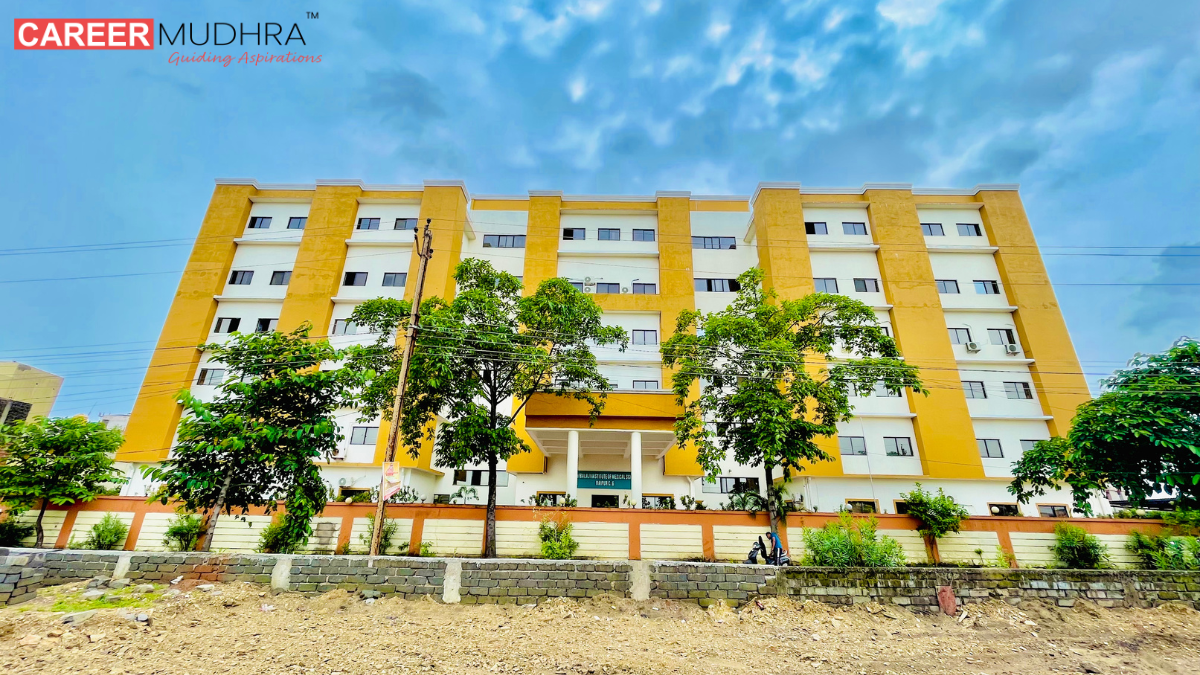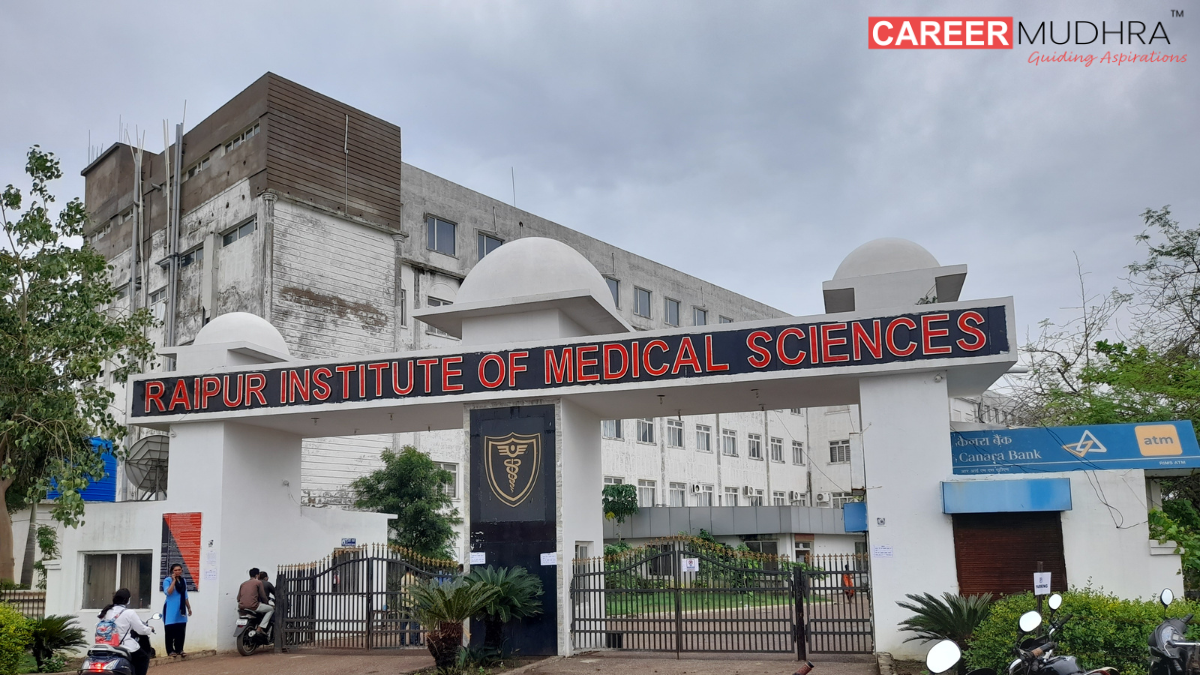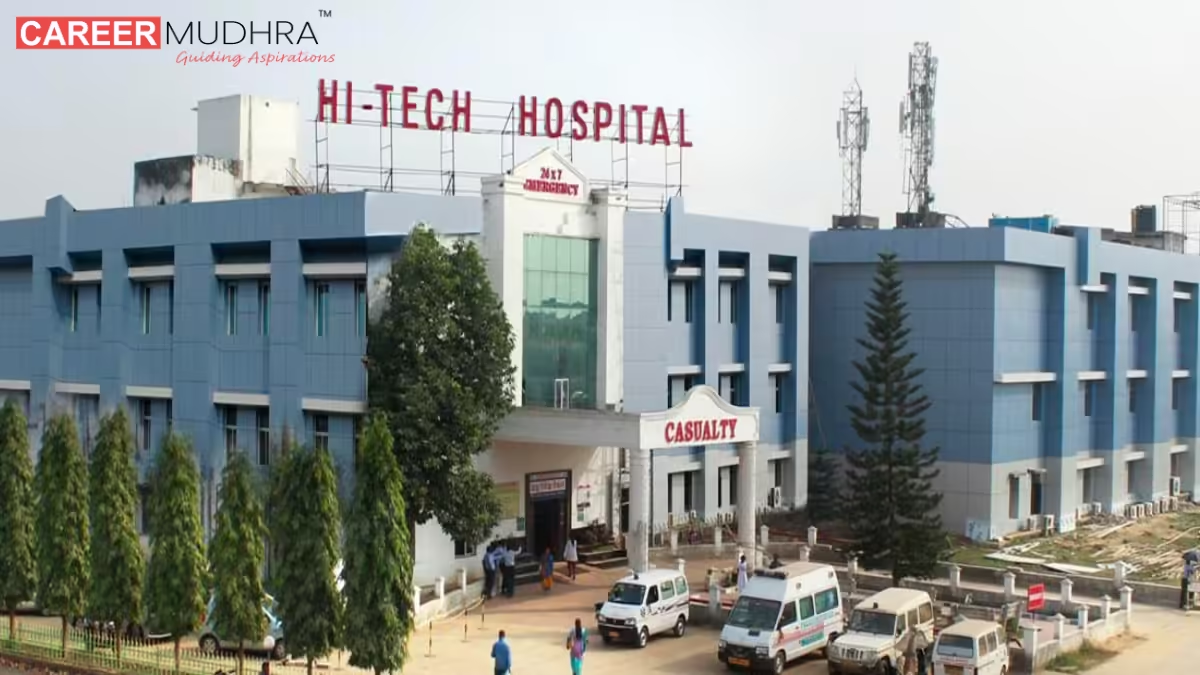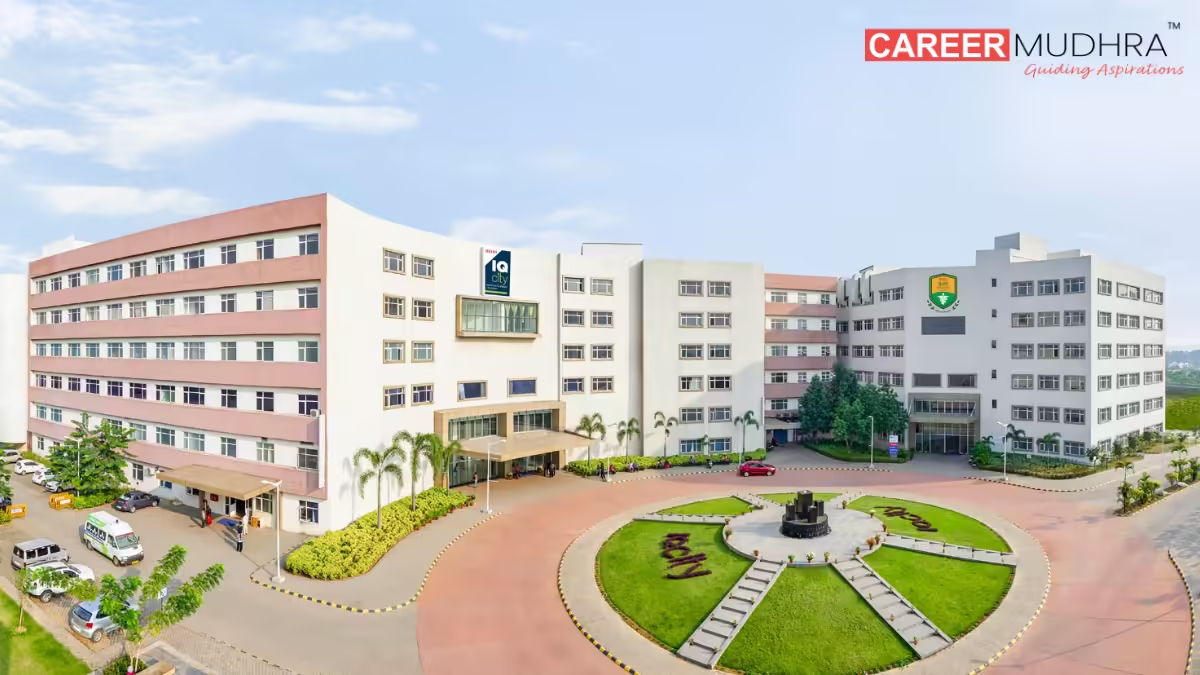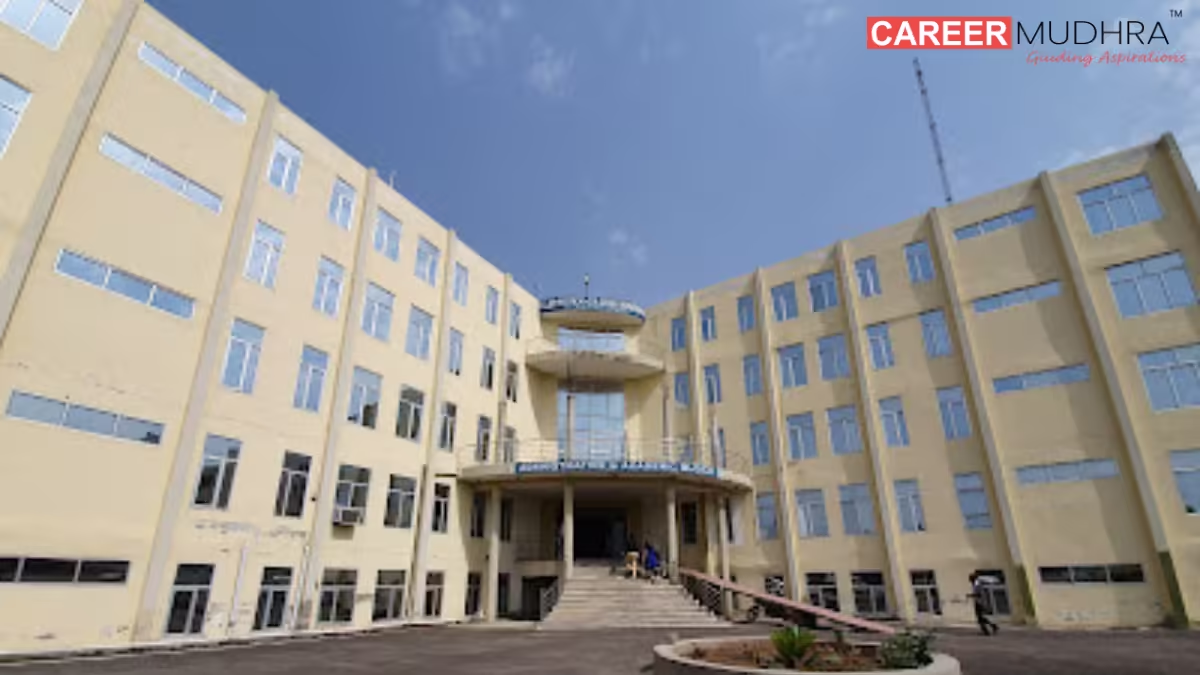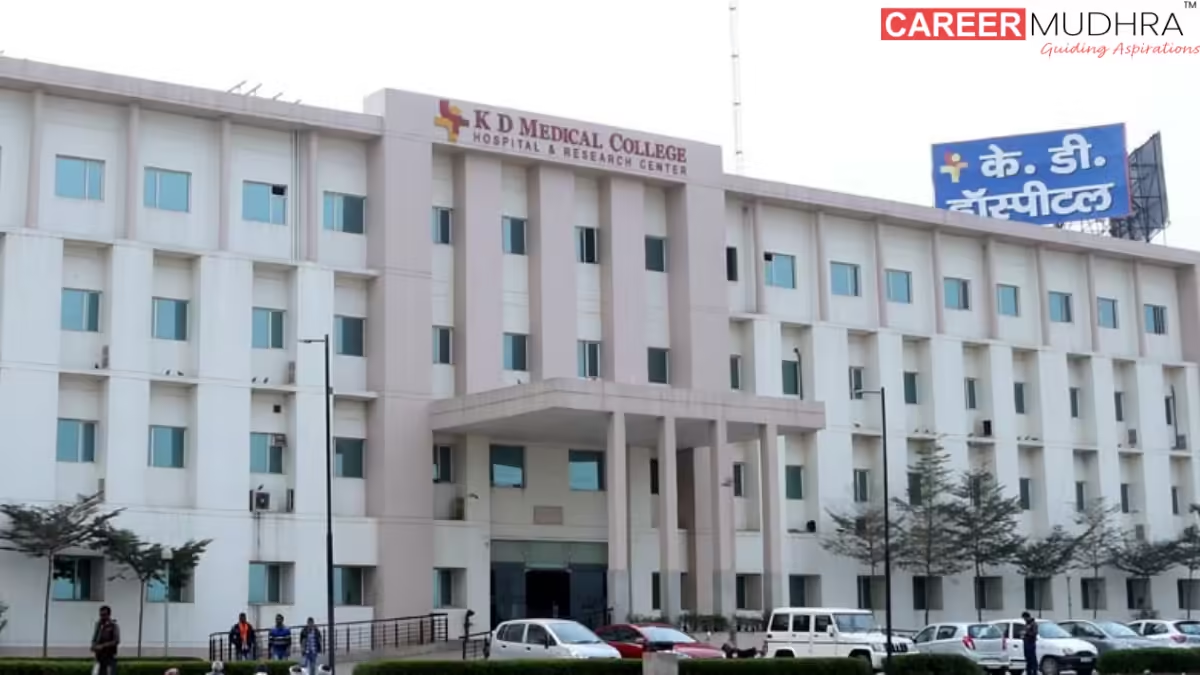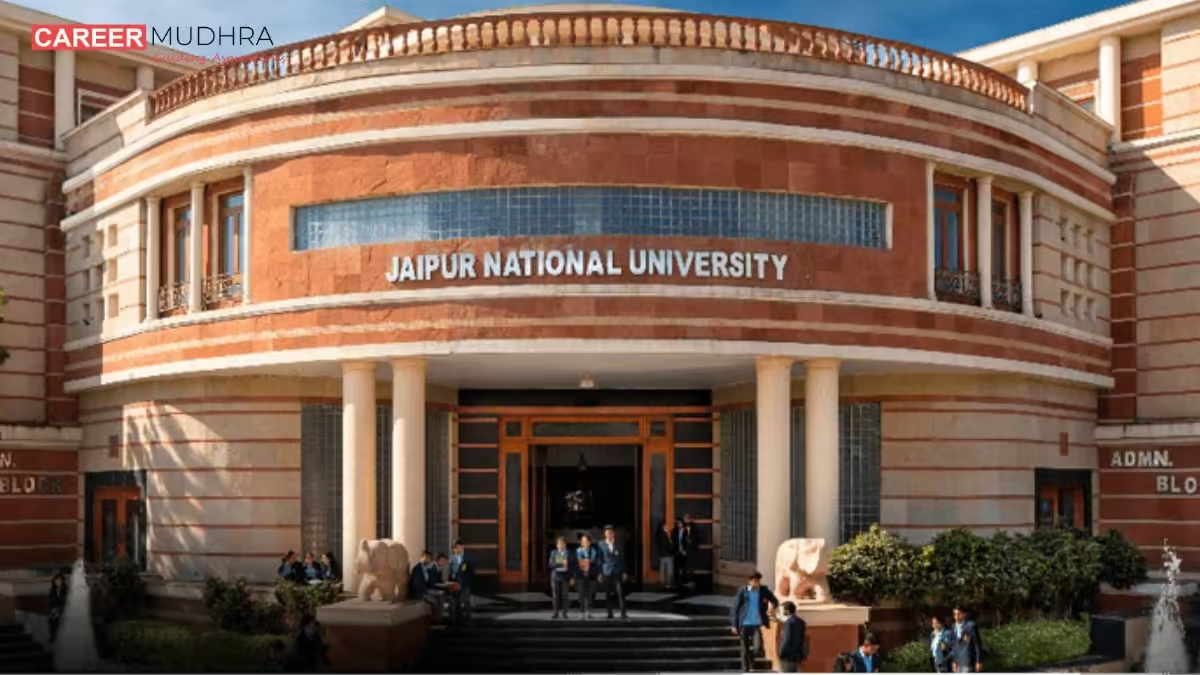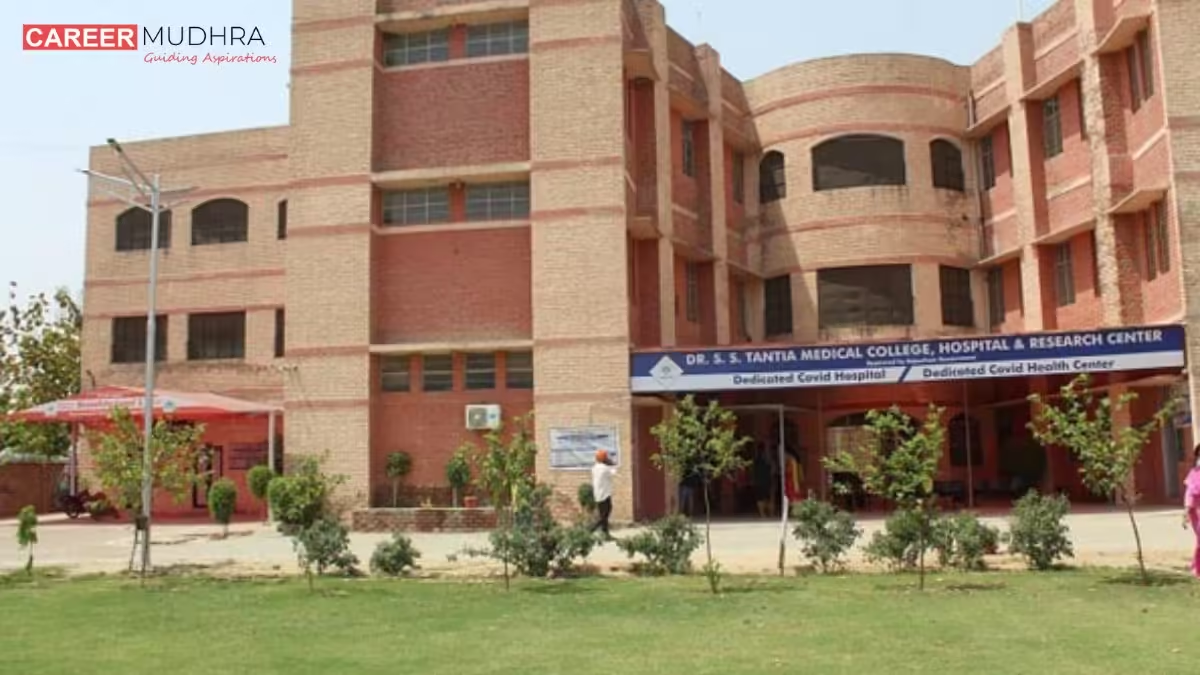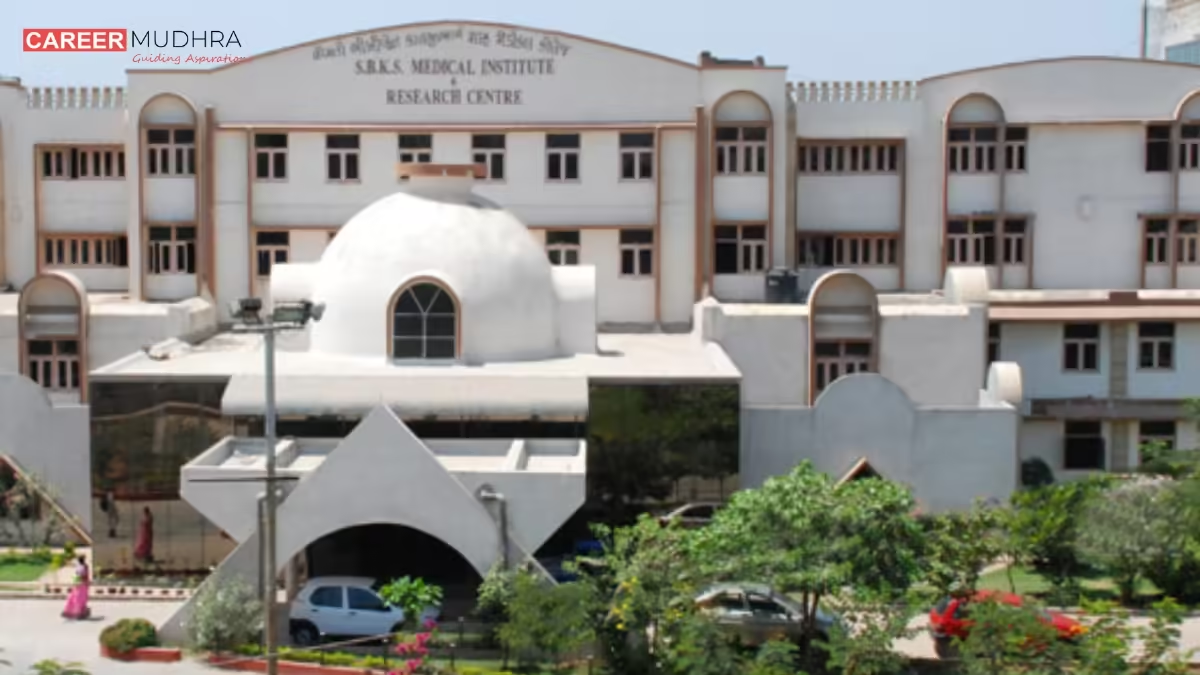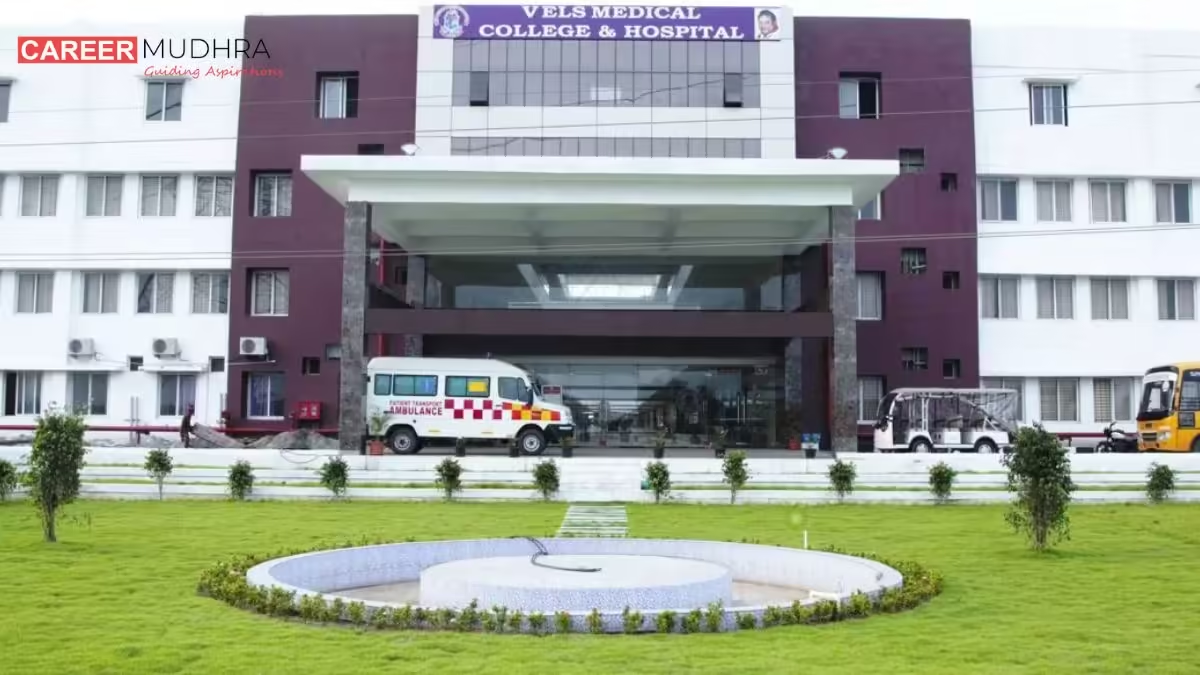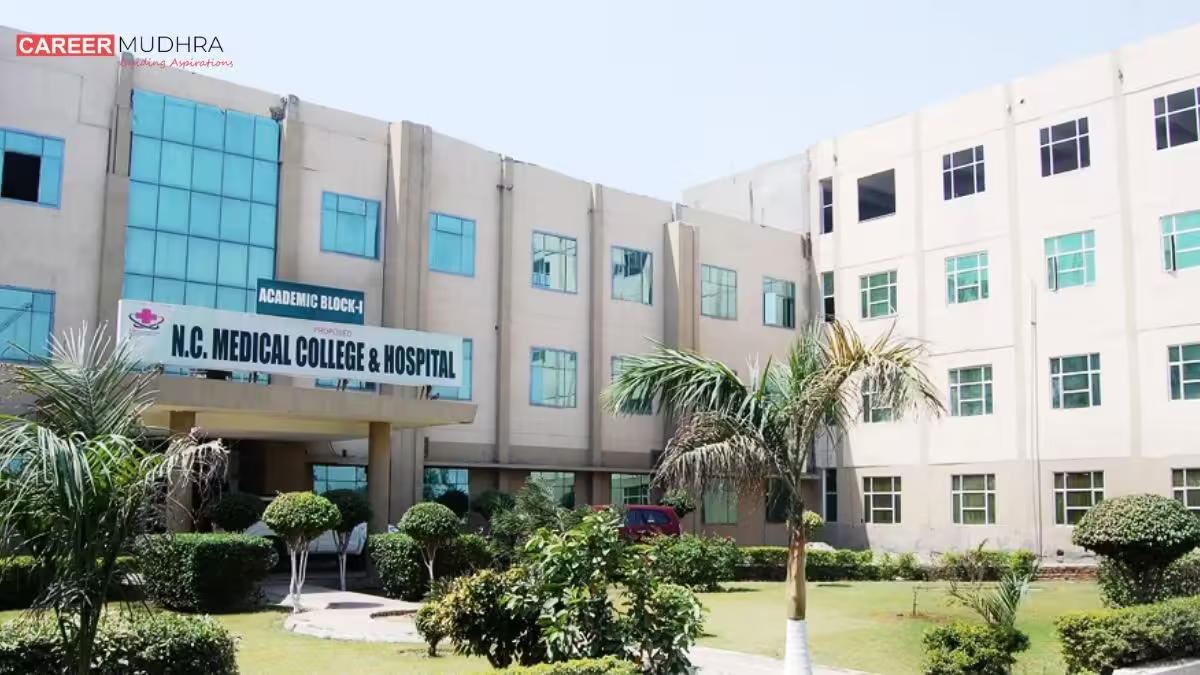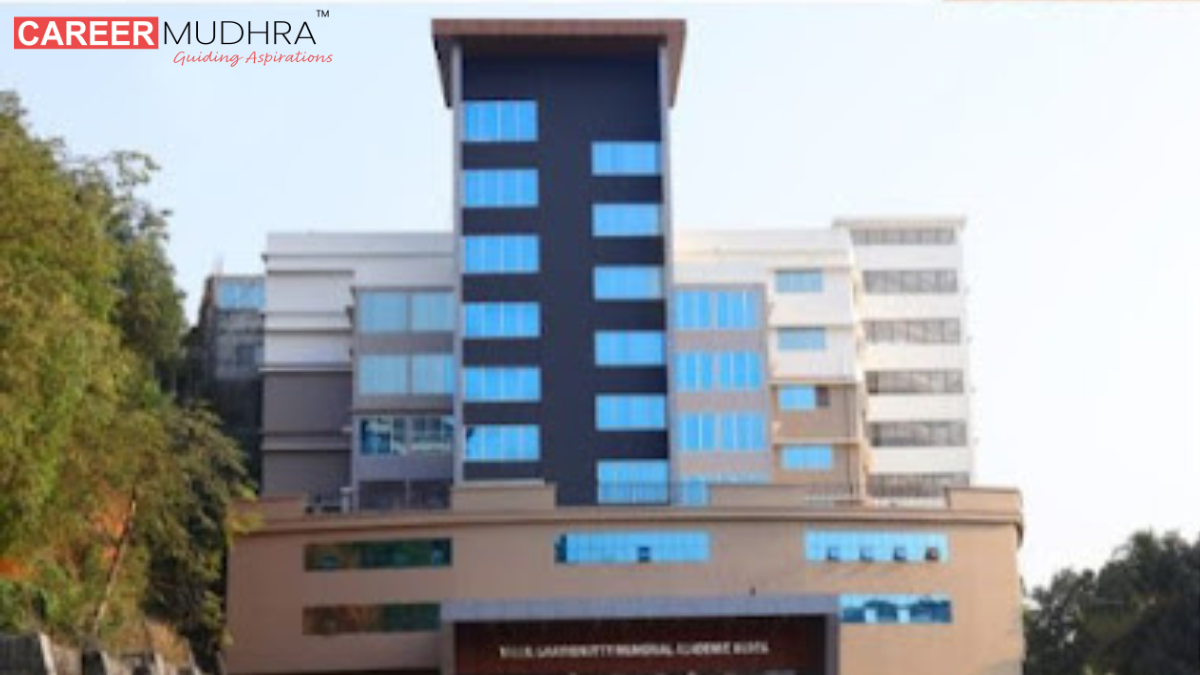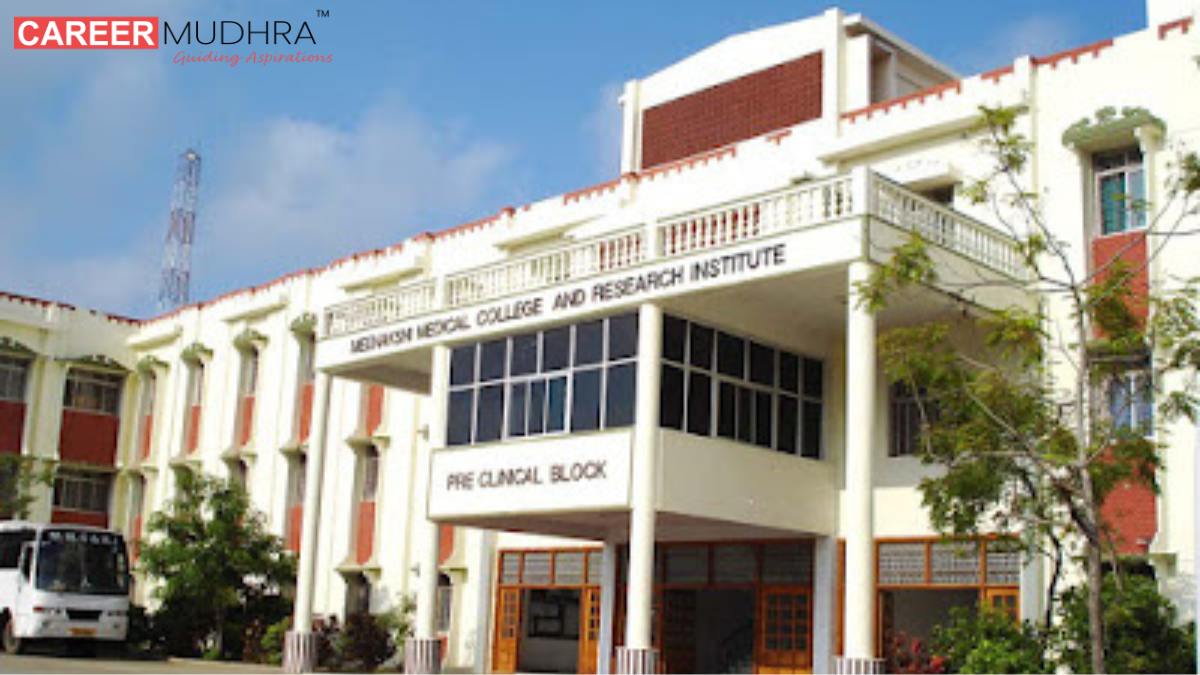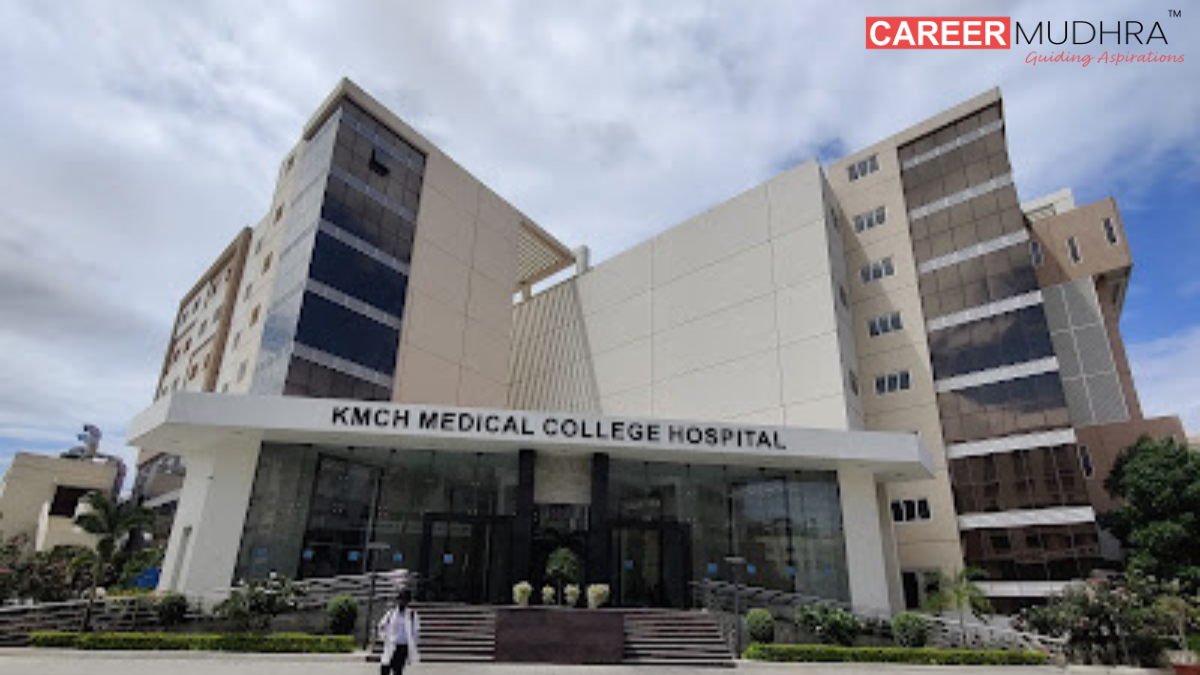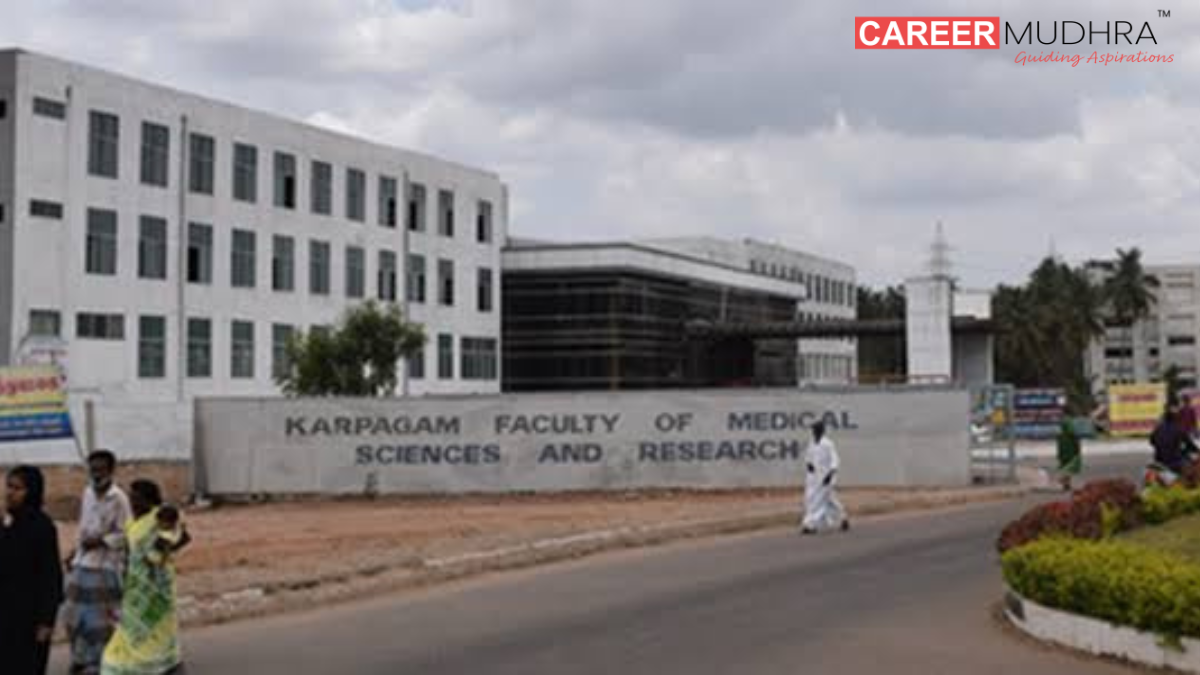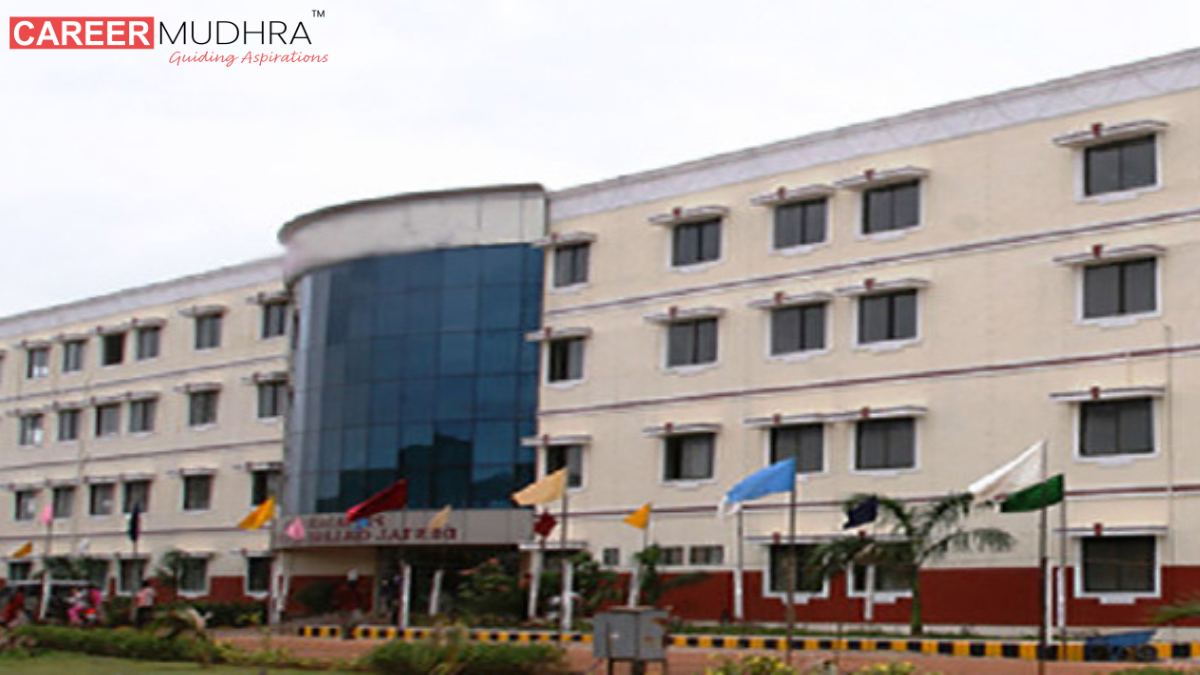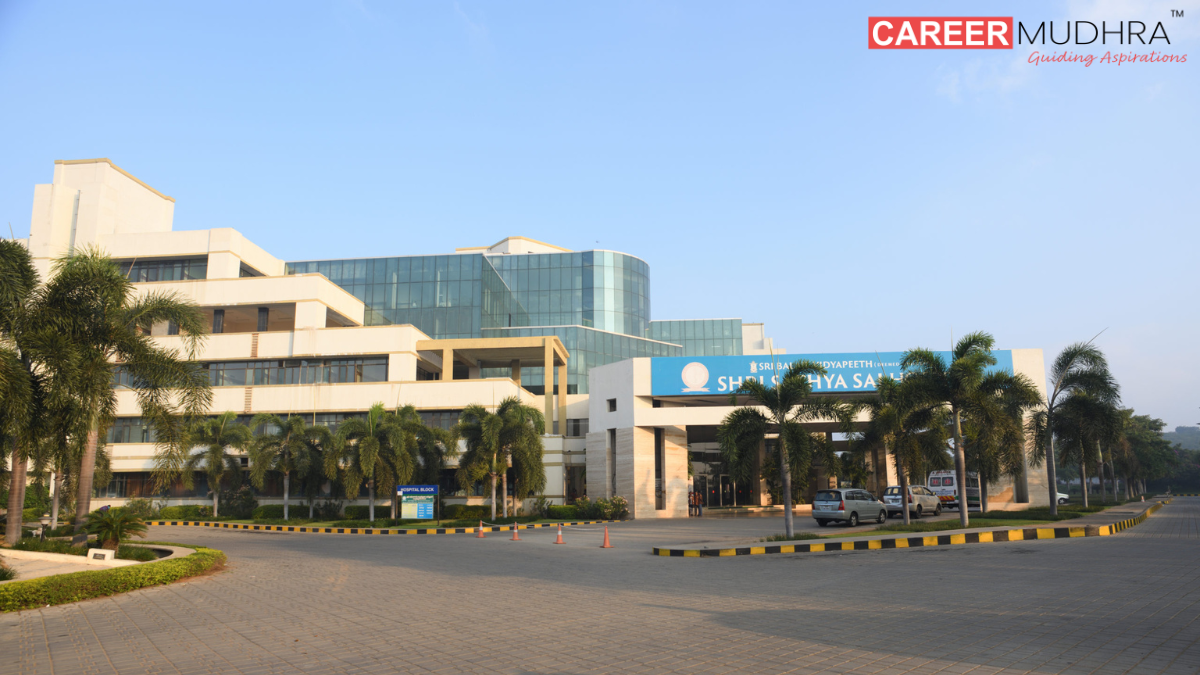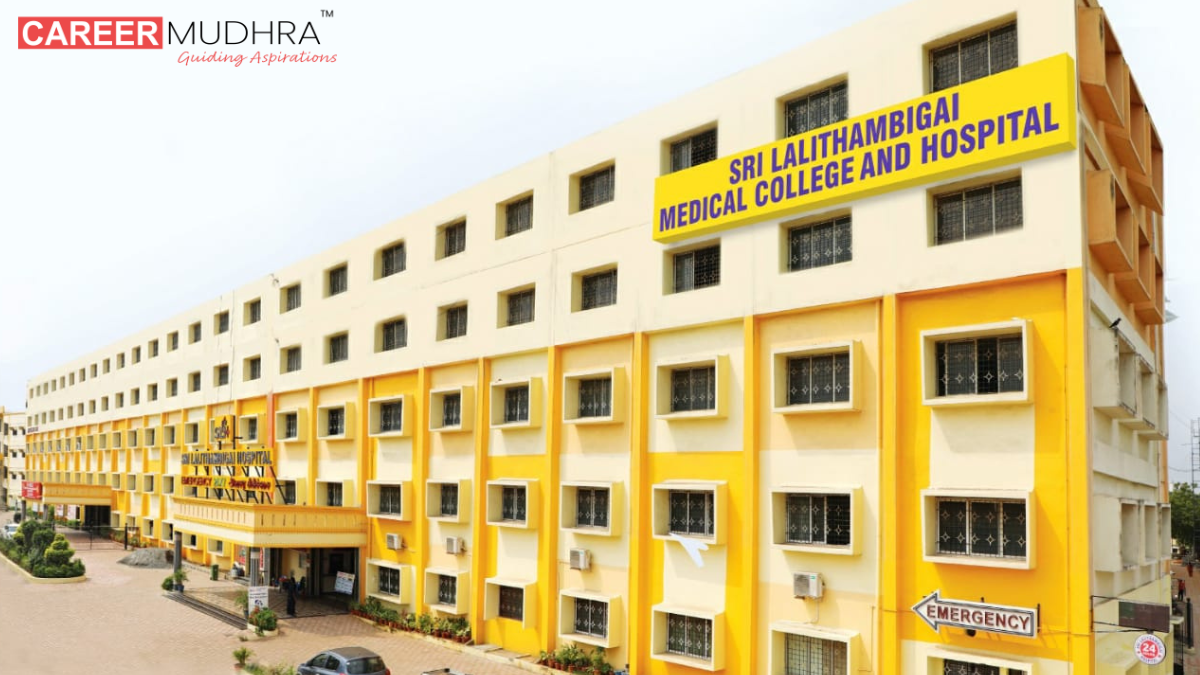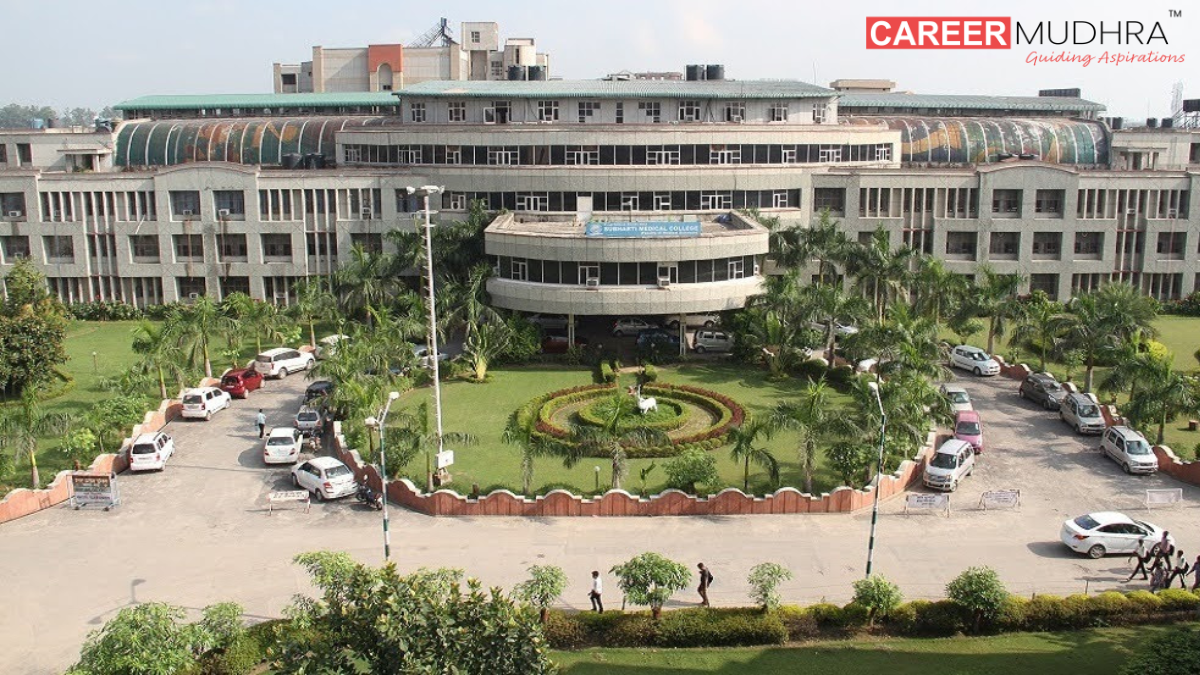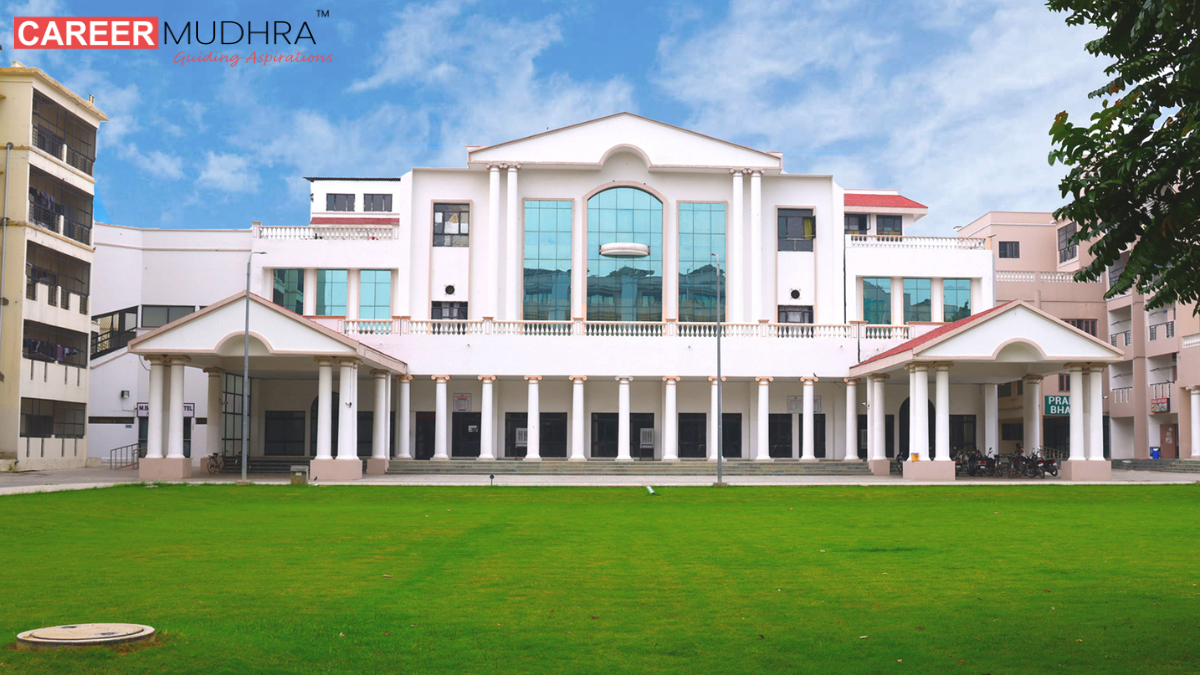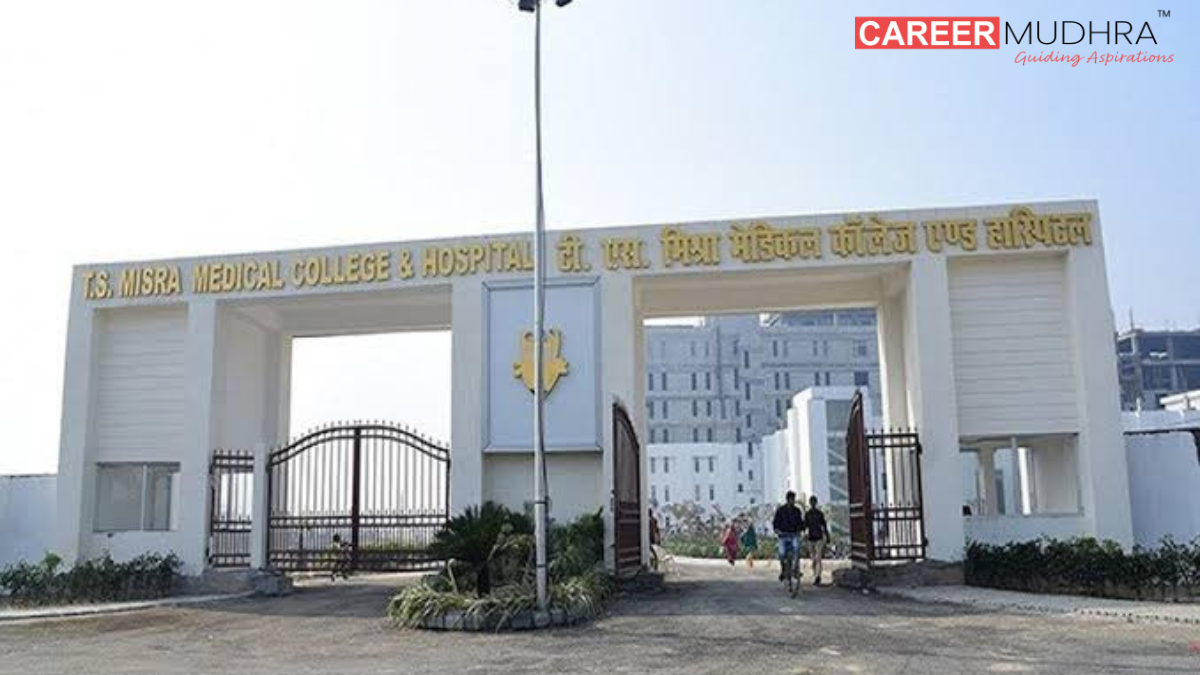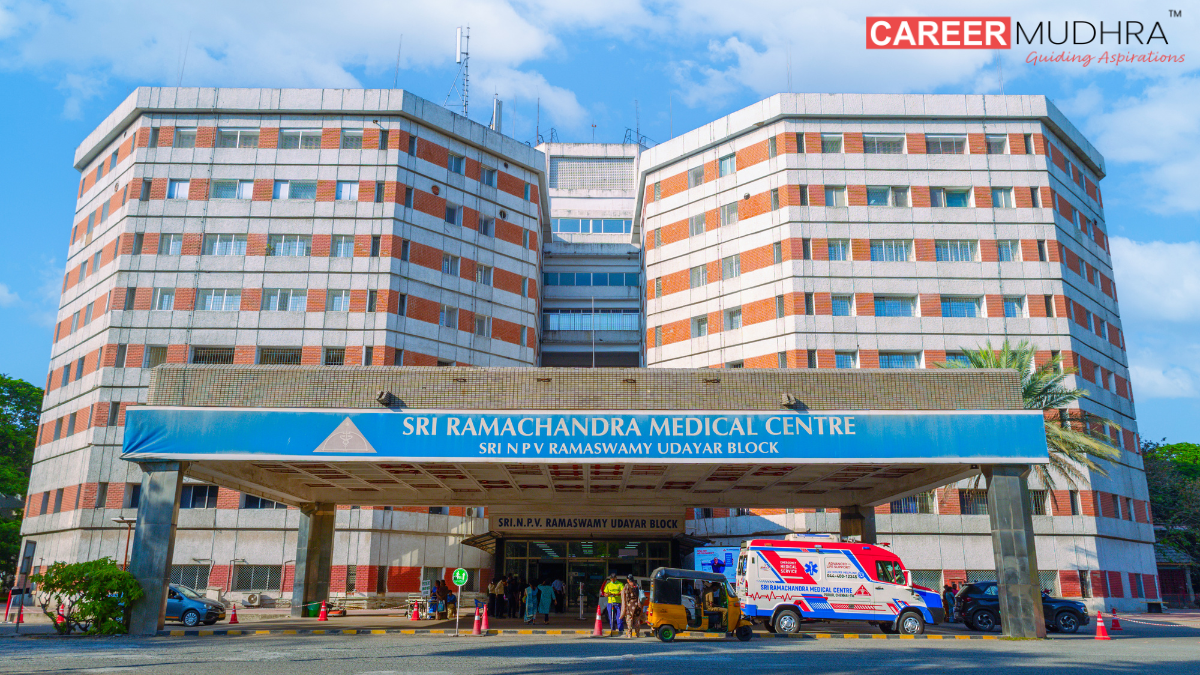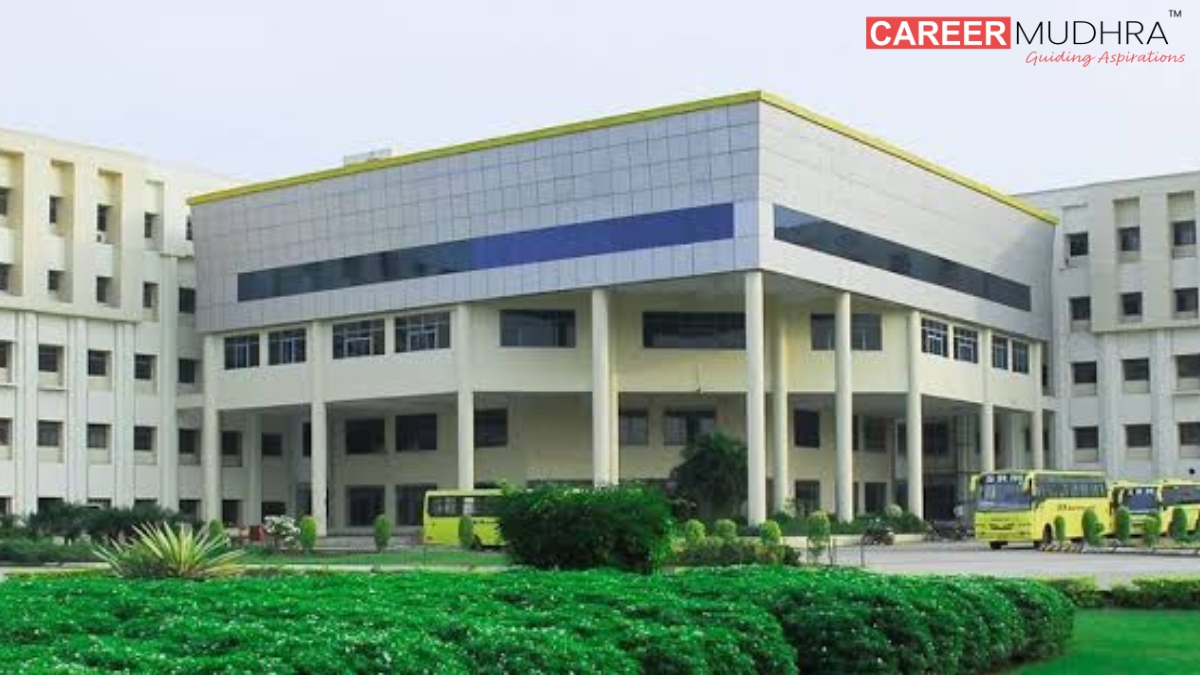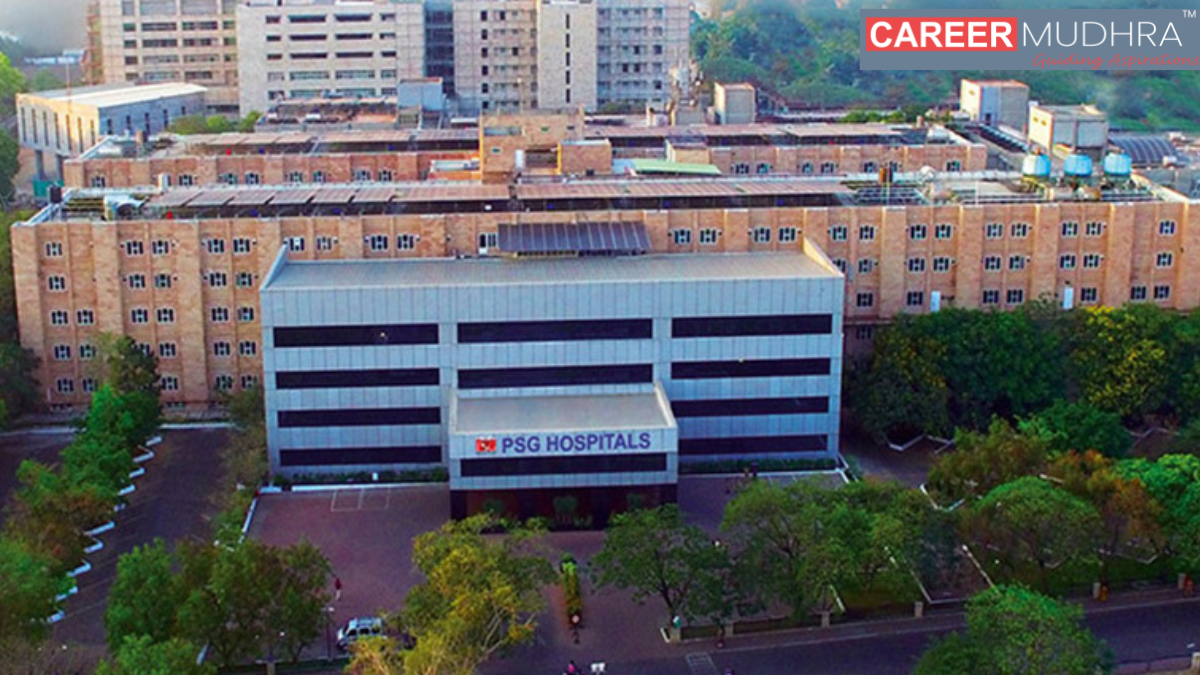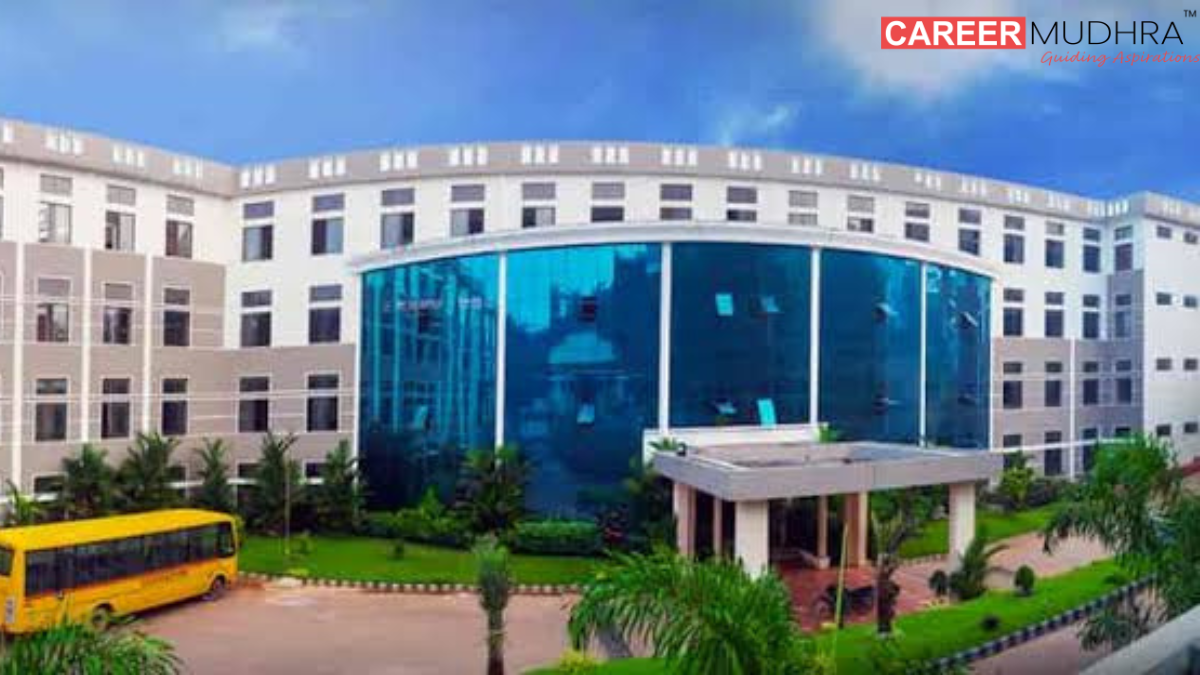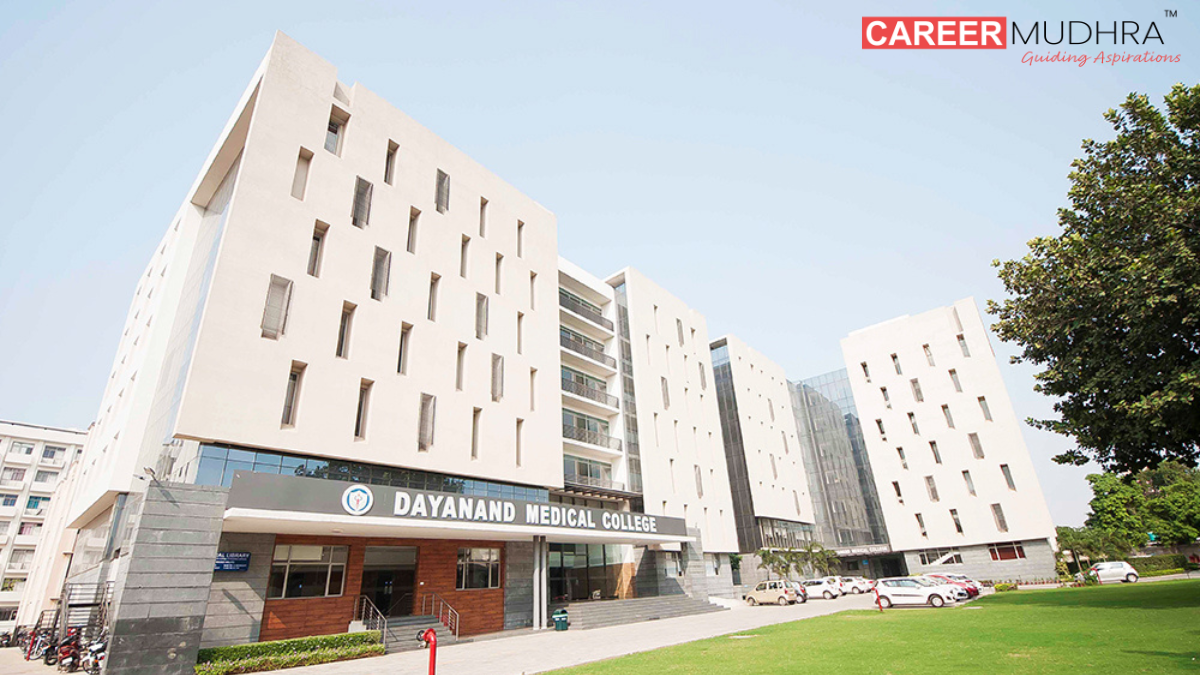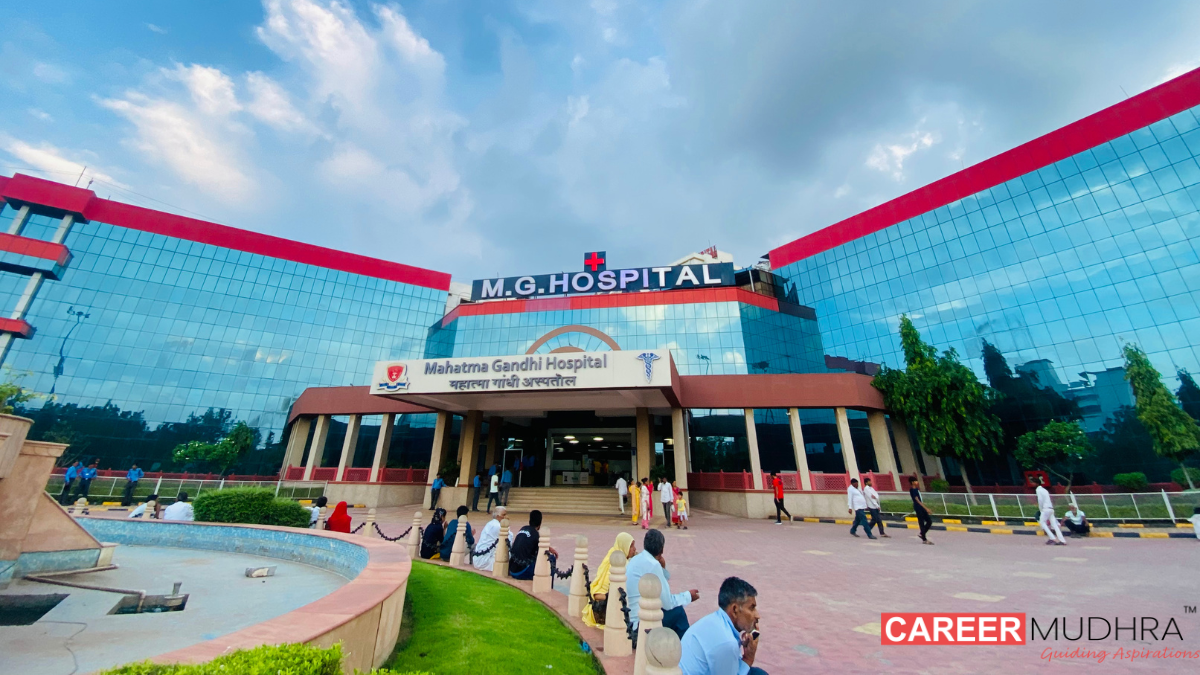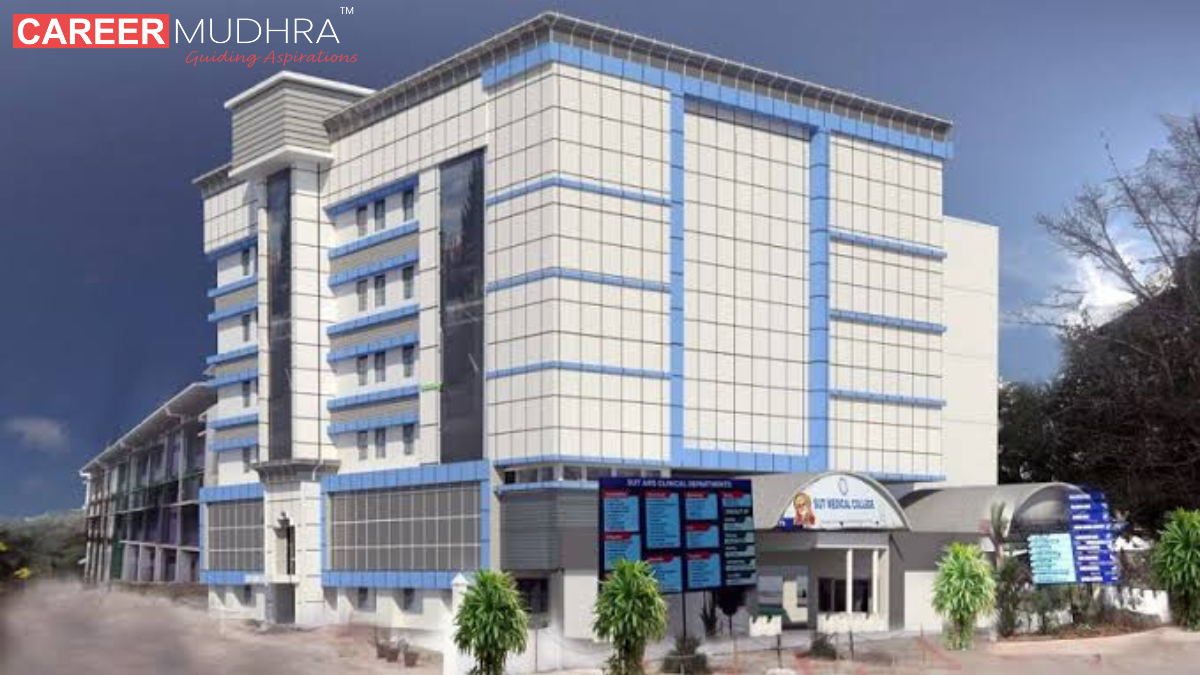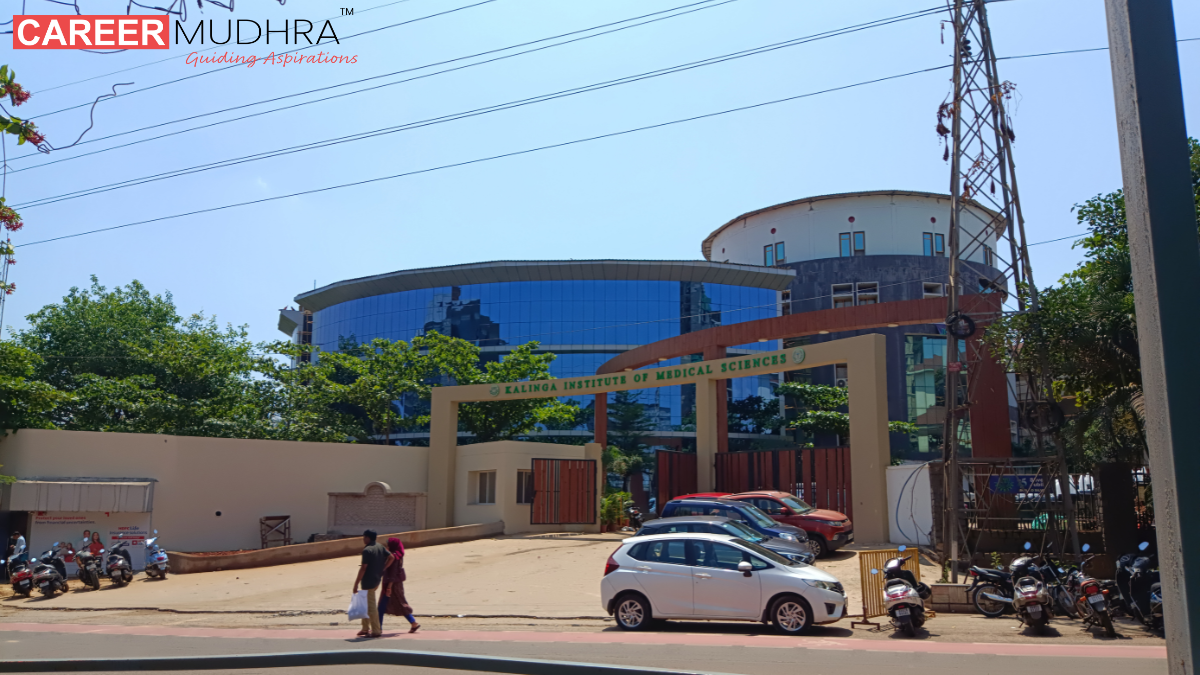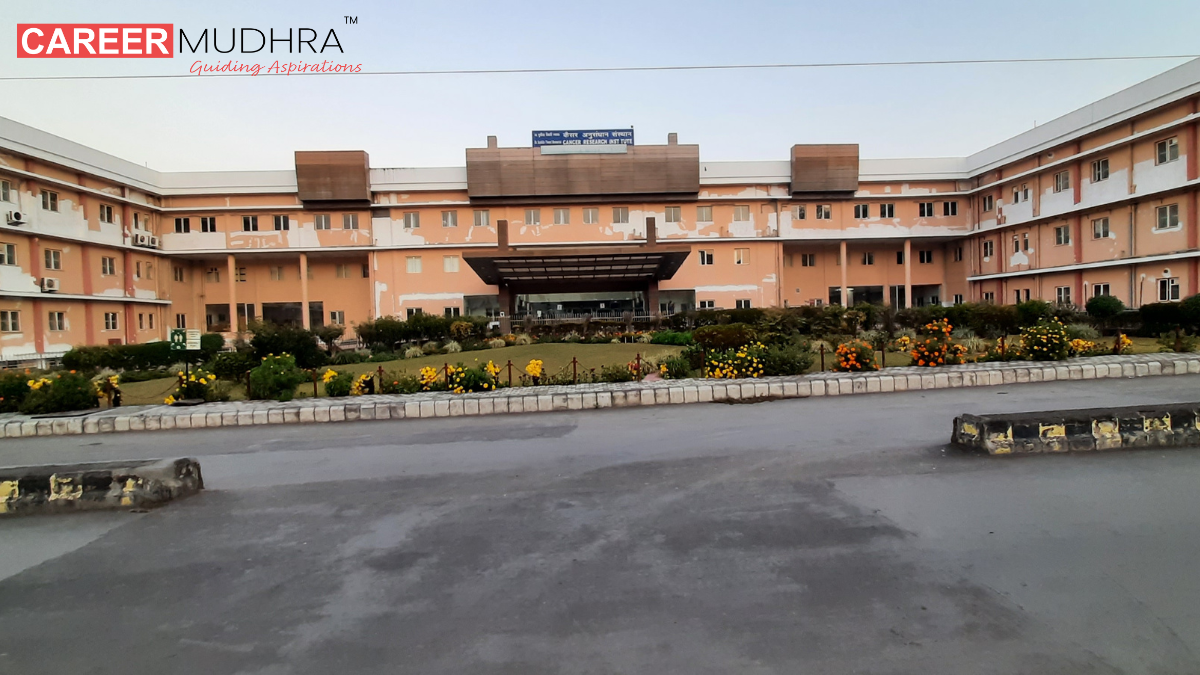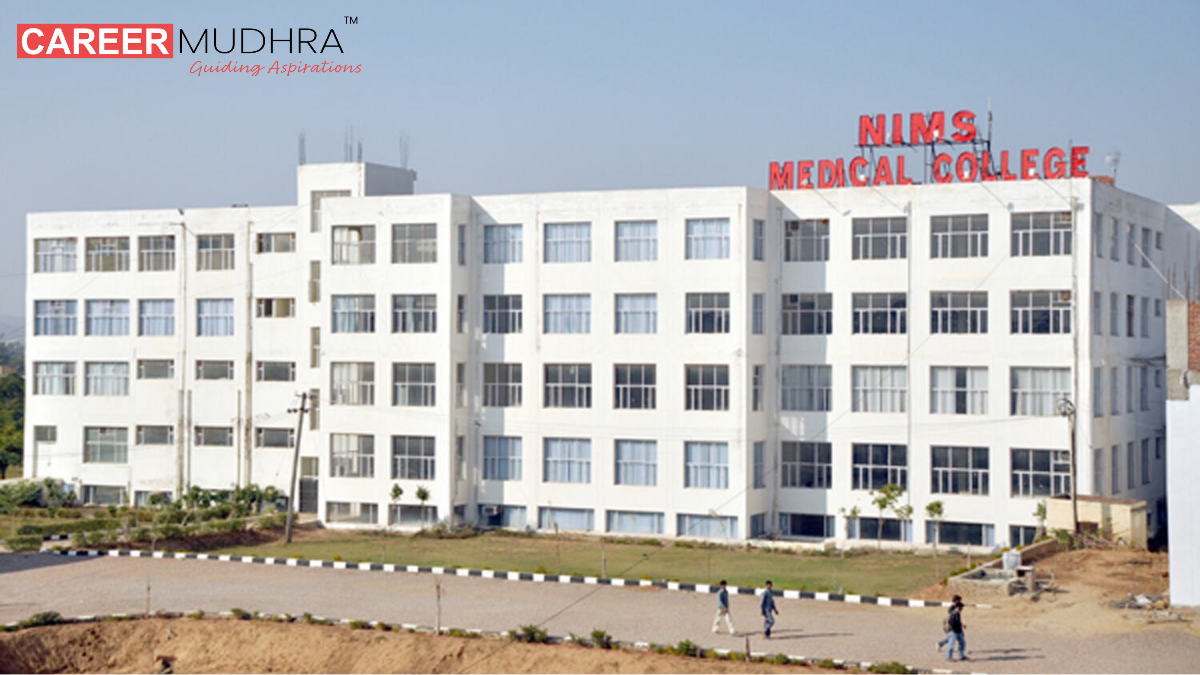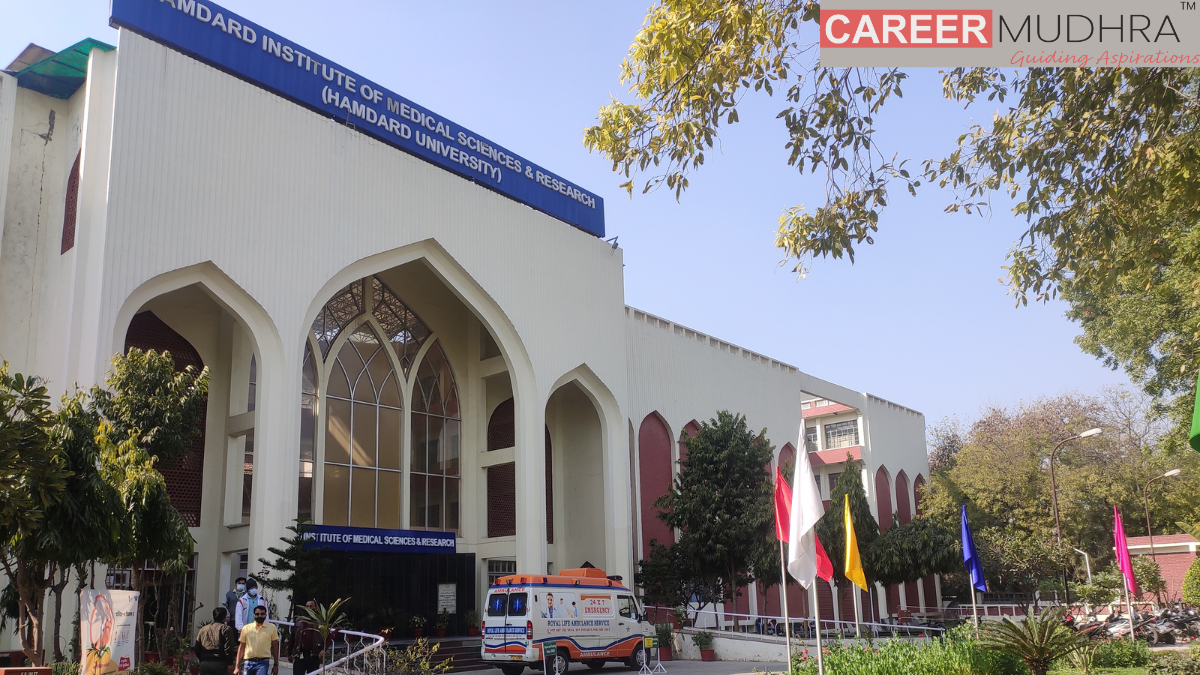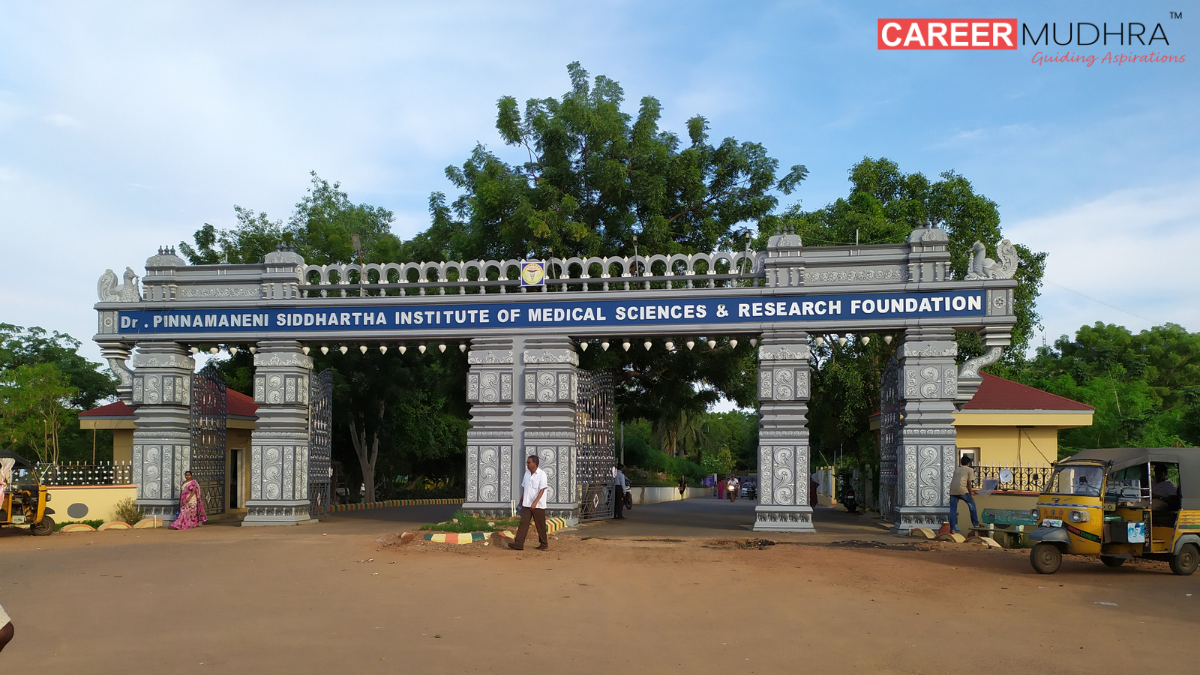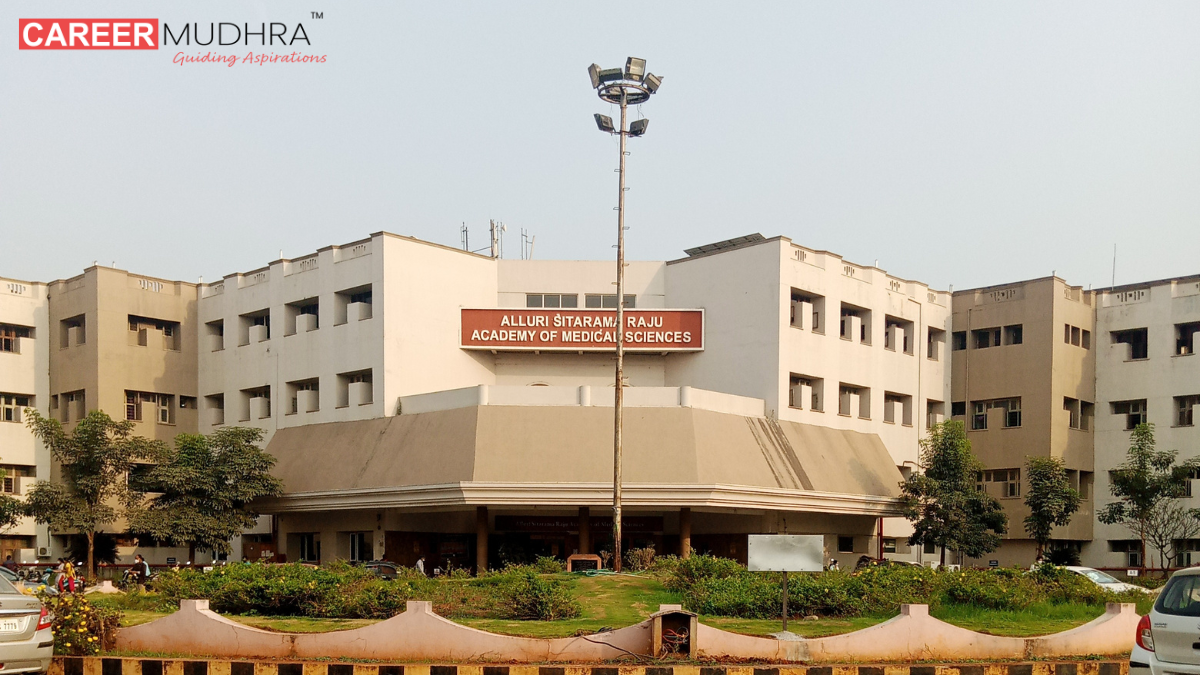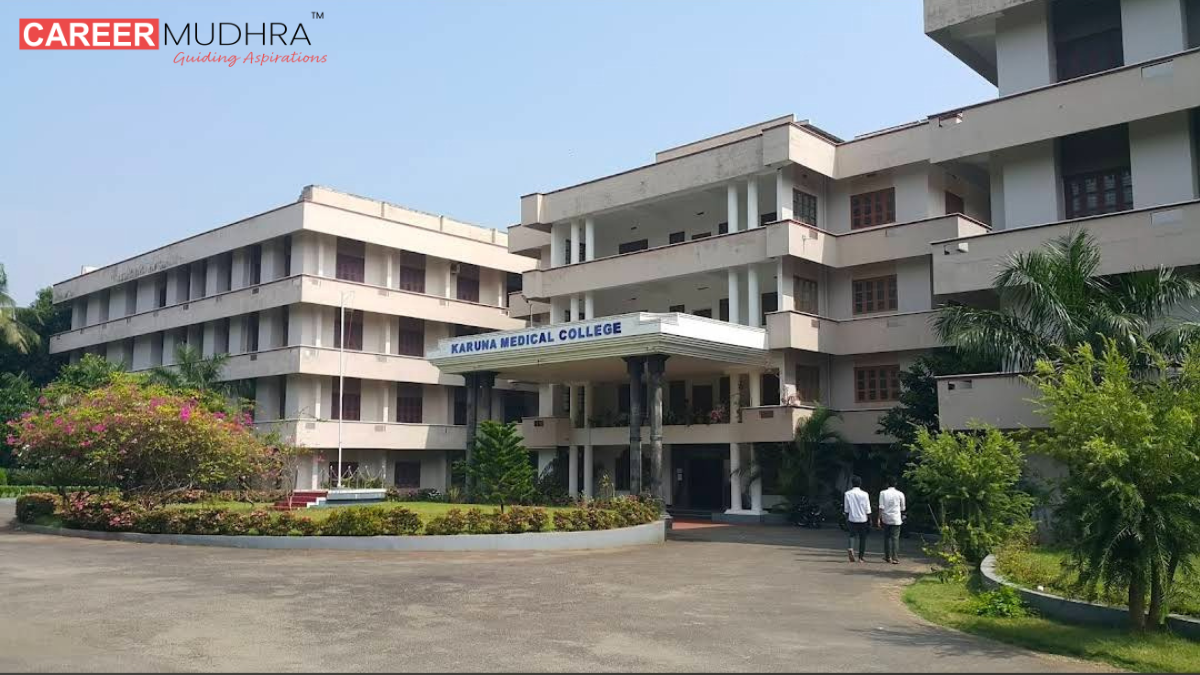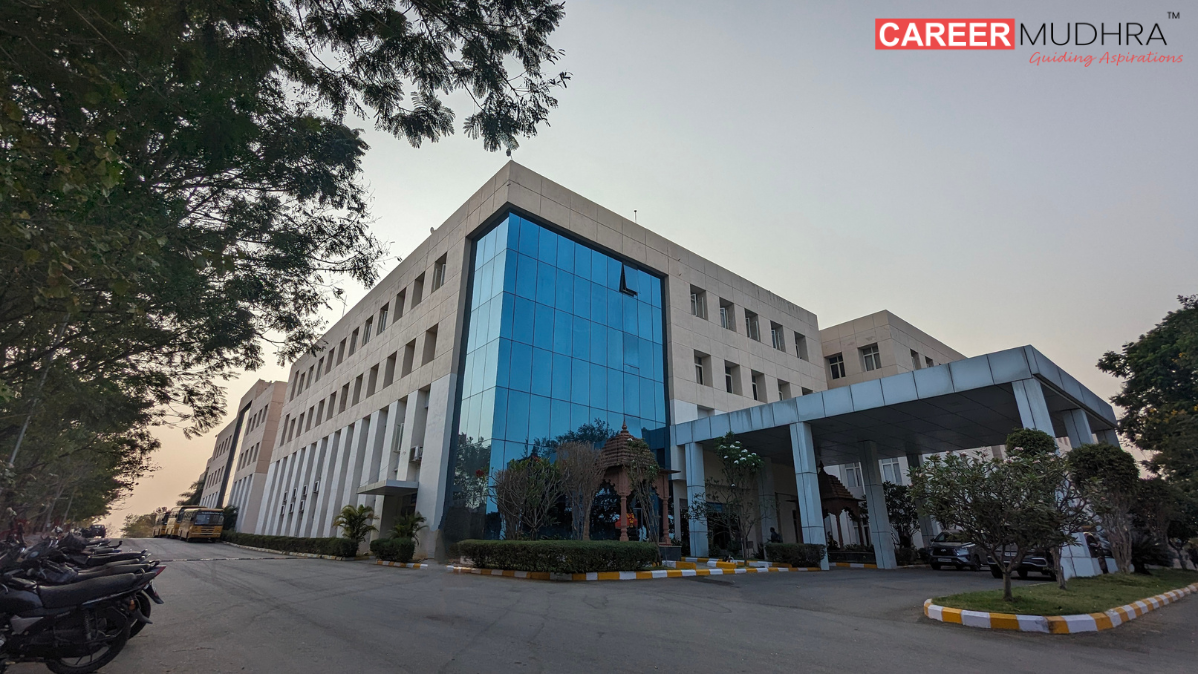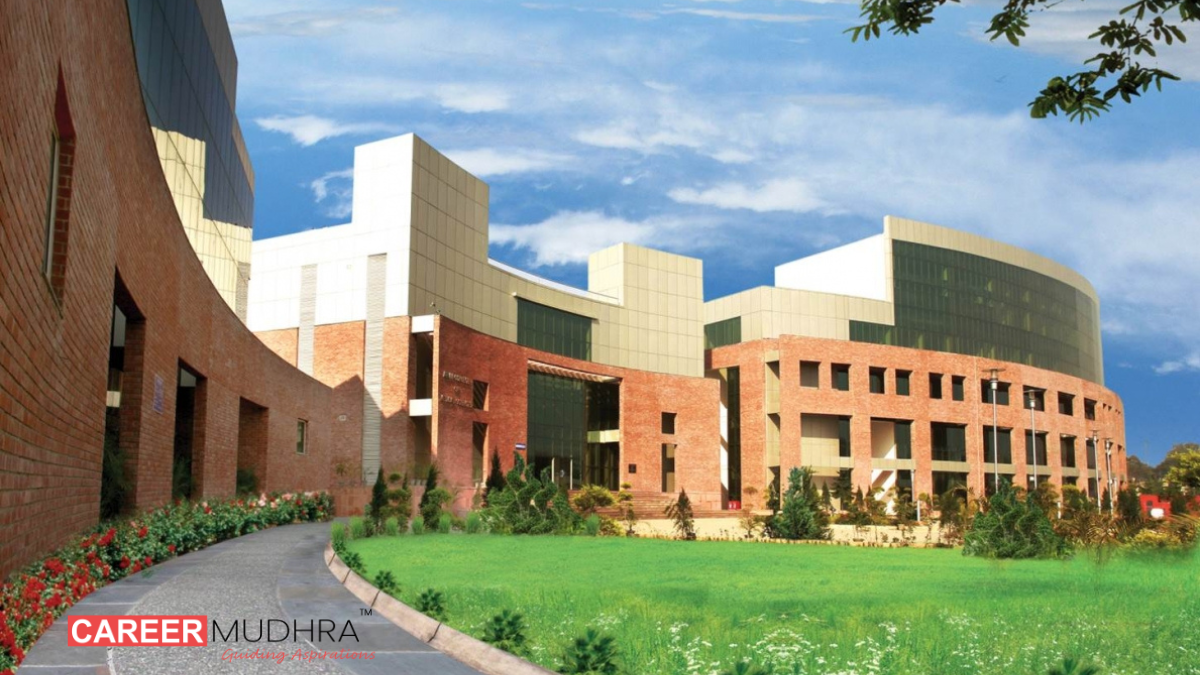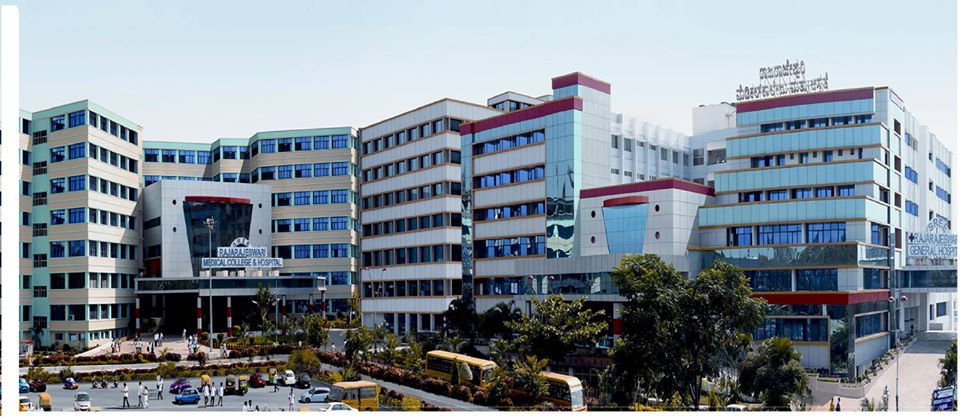The major difference between MD and MS in the medical field is that MS (Master of Surgery) focuses on performing surgeries and surgical techniques, while MD (Doctor of Medicine) focuses on diagnosing and treating diseases without surgery, often through medication and other therapies.
Choosing between MD (Doctor of Medicine) and MS (Master of Surgery) after an MBBS can be a daunting decision. While both offer rewarding careers, they differ significantly in focus, training, and outcomes.
Understanding the key differences between MD and MS is essential for making the right choice in 2024.
This article will delve into the key differences between MD and MS, helping you make an informed choice about your career path.
Before diving deep into the comparison of MD and MS, it’s essential to understand some key points that will help clarify the differences in various aspects of both degrees. Let’s break them down in simple terms:
1. Difference Between MD and MS
- MD (Doctor of Medicine) is a postgraduate degree focused on the diagnosis and treatment of diseases using non-surgical methods. It prepares doctors to become specialists in areas like internal medicine, cardiology, neurology, or pediatrics.
- MS (Master of Surgery) is also a postgraduate degree, but its emphasis is on surgical techniques. MS graduates are trained to perform surgeries in fields such as general surgery, orthopedics, gynecology, and more. In essence, MD deals with medicine, while MS deals with surgery.
2. Difference Between MD and MS in India
- In India, both MD and MS are highly respected postgraduate medical qualifications. The fundamental difference is that MD focuses on treating diseases through medication and other non-surgical approaches, whereas MS focuses on the treatment of patients through surgical procedures.
- MD specialties include General Medicine, Dermatology, Psychiatry, Pediatrics, etc. MS specializations include General Surgery, Orthopedics, Urology, and Gynecology.
- Both degrees are essential for healthcare in India, and there is a consistent demand for specialists in both areas.
3. Difference Between MD and MS vs MBBS
- MBBS (Bachelor of Medicine, Bachelor of Surgery) is an undergraduate medical degree that equips students with the basic knowledge and skills to become general practitioners. After completing MBBS, students can choose to pursue postgraduate degrees like MD or MS.
- MBBS is more general and provides foundational medical knowledge, whereas MD and MS are specialized fields of study.
- MBBS doctors can either practice as general physicians or opt for further specialization through MD or MS, depending on their career interests.
4. Difference Between MD and MS Doctor
- MD Doctors are specialized in diagnosing, treating, and managing patients through non-surgical methods. For example, an MD in Cardiology would treat heart conditions through medical therapies rather than performing surgeries.
- MS Doctors, on the other hand, are trained in performing surgeries. An MS in General Surgery would involve hands-on surgical interventions to treat conditions such as tumors, appendicitis, or trauma cases.
5. Difference Between MD and MS in Gynecology
- In Gynecology, both MD and MS are common postgraduate pathways.
- MD in Obstetrics and Gynecology: Doctors with this degree focus more on the medical management of pregnancy, childbirth, and female reproductive system disorders.
- MS in Obstetrics and Gynecology: Surgeons with this degree are trained to perform surgeries related to the female reproductive system, such as C-sections, hysterectomies, and other complex gynecological surgeries.
6. Difference Between MD and MS in Ophthalmology
- In Ophthalmology, both MD and MS are offered, but their focus differs slightly.
- MD in Ophthalmology: Focuses on diagnosing and treating eye conditions medically, including prescribing medications for eye diseases like glaucoma or cataracts.
- MS in Ophthalmology: Primarily focuses on surgical treatments of eye conditions, including corrective surgeries like cataract removal, LASIK, or retinal surgeries.
7. Difference Between MD and MS in Obg
- MD OBG focuses on medical aspects (diagnosis, monitoring, non-surgical treatments), while MS OBG specializes in surgical procedures for women’s health.
- MD OBG involves more clinical rotations in OB-GYN wards; MS OBG emphasizes rotations in surgical suites. Both MD and MS OBG require clearing the NEET PG exam for entry. MD Gynecology fees range from ₹5-20 lakhs for the entire course.
- MS OBG salary in India typically ranges from ₹8-15 lakhs per annum, varying with experience and location.
- MD OBG can perform minor surgeries, but MS OBG is preferred for major surgical procedures.
- DGO (Diploma in Gynecology and Obstetrics) is a shorter course compared to MS Gynecology, while MD OBG offers more advanced training and research opportunities than DGO.
8. Differences Between MD Anatomy and MS Anatomy
- Focus: MD Anatomy is non-surgical and research-oriented, while MS Anatomy emphasizes clinical and surgical applications.
- Eligibility: MD Anatomy requires MBBS and NEET-PG, whereas MS Anatomy also requires a one-year internship and entrance exams.
- Duration: Both programs have a duration of 3 years.
- Subjects Covered: MD Anatomy covers Systematic Anatomy, Neuroanatomy, and Radiological Anatomy, while MS Anatomy focuses on Human Gross Anatomy, Histology, and surgical applications.
- Career Opportunities: MD graduates typically pursue roles in academia and research, such as lecturers or researchers, while MS graduates enter surgical roles in hospitals, clinics, or academic settings.
- Salary: MD Anatomy graduates earn between INR 3 to 10 lakh annually, while MS Anatomy graduates tend to have higher salaries due to the demand for surgical skills.
9. Difference Between DNB and MD/MS
- Admission Process: DNB admissions are based on NEET PG or DNB PDCET scores, with options for online and offline applications. MD/MS admissions may require additional exams such as INI CET or institution-specific tests, and sometimes interviews.
- Eligibility Criteria: For DNB, candidates need an MBBS degree with a minimum of 50% marks and a one-year internship, with an age limit of up to 50 years. MD/MS requires an MBBS degree and a one-year internship, with no specific age limit, and some institutes may have higher criteria.
- Documentation: DNB requires proof of MBBS degree, internship completion, and MCI registration. MD/MS programs typically require similar documentation, but the process may vary by institution.
- Career Prospects: DNB graduates can work as specialists in various fields such as Paediatrics, Anaesthesia, and Nephrology, with potential roles in clinical settings and academia. MD/MS graduates have similar career options but may also find more opportunities in academic and research roles, particularly in teaching.
- Focus: DNB programs offer a wide range of specialties with a practical approach, while MD/MS programs often provide a more structured education in general medicine and surgery.
10. MD vs MS: Which is Better?
- Deciding which is better depends on your personal interests and career goals.
- If you prefer a career in diagnosis and medical treatment, an MD might be the better choice.
- If you are passionate about surgery and hands-on treatment, then MS would be the preferred path.
- Ultimately, both degrees are prestigious, and the best option is the one that aligns with your skills and long-term aspirations.
11. Which is Tougher: MD or MS?
- MS is often considered more physically demanding and mentally challenging due to the nature of surgical procedures, long hours in the operating room, and the high stakes of surgery.
- MD can be equally challenging in terms of intellectual rigor, as it requires a deep understanding of medicine and patient care without relying on surgical interventions.
- The difficulty of each depends largely on the individual’s personal aptitude for medical or surgical work.
12. MD vs MS Salary
- The salary for both MD and MS doctors varies depending on specialization, experience, and location.
- On average, MS Doctors (especially surgeons) tend to have a higher starting salary due to the critical and complex nature of surgeries. For example, surgeons in specialties like cardiothoracic or neurosurgery can command significant salaries.
- MD Doctors also earn substantial incomes, particularly those in high-demand specialties like cardiology, oncology, and gastroenterology.
- Ultimately, both MD and MS specialists are well-compensated, but surgeons may have a slight edge in terms of earning potential due to the high skill set required for surgical procedures.
Contents
Key Takeaways:
- MD (Doctor of Medicine): Focuses on medical diagnosis, prevention, and non-surgical care.
- MS (Master of Surgery): Focuses on surgical treatment of diseases and specialized surgeries.
- Duration: Both MD and MS are 3-year postgraduate programs pursued after MBBS.
- Career Path: MD leads to becoming a physician, while MS leads to becoming a surgeon.
- Specializations: MD includes Internal Medicine, Pediatrics, Dermatology; MS includes General Surgery, Orthopedics, ENT.
- Salary: MS surgeons often have higher starting salaries compared to MD physicians, but both can be lucrative with experience.
- Gynecology & Ophthalmology: Both fields offer MD and MS paths, depending on whether the focus is medical or surgical.

GET PERSONALISED CAREER COUNSELLING WITH CAREERMUDHRA
Difference Between MD and MS
MD (Doctor of Medicine) focuses on the diagnosis, prevention, and medical treatment of diseases. It prepares doctors to become physicians specializing in internal medicine, pediatrics, or similar non-surgical fields.
MS (Master of Surgery) involves the surgical treatment of diseases. It prepares doctors to become surgeons in fields such as general surgery, orthopedics, and more specialized surgical branches.
| Aspect | MD (Doctor of Medicine) | MS (Master of Surgery) |
|---|---|---|
| Focus | Diagnosis, prevention, and non-surgical care | Surgical treatment of diseases |
| Training Duration | 3 years | 3 years |
| Common Specializations | Internal Medicine, Pediatrics, Dermatology | General Surgery, Orthopedics, ENT |
| Career Path | Physician | Surgeon |
| Postgraduate Entrance Exam | NEET PG | NEET PG |
The key differences between MD and MS lie in their focus and career paths. MD programs emphasize diagnosis, prevention, and non-surgical care, leading to careers as physicians. In contrast, MS programs prioritize surgical treatment of diseases, culminating in careers as surgeons. Both degrees require a 3-year training period and typically involve the NEET PG entrance exam for admission.
Also SEE: MD MS Admission Through Management Quota

Difference Between MD and MS in India
In India, MD and MS are postgraduate degrees. Candidates must first complete an MBBS degree and pass the NEET-PG entrance exam. The primary difference lies in their specialization and career paths. MD focuses on fields that are largely non-surgical, while MS revolves around surgical disciplines.
| Criteria | MD | MS |
|---|---|---|
| Eligibility | MBBS + NEET PG | MBBS + NEET PG |
| Recognizing Body | National Medical Commission (NMC) | National Medical Commission (NMC) |
| Program Duration | 3 years | 3 years |
| Specializations | Medicine, Pediatrics, Psychiatry | Surgery, Orthopedics, Obstetrics & Gynecology |
| Job Market | High demand in hospitals, clinics | High demand in hospitals, surgical centers |

GET PERSONALISED CAREER COUNSELLING WITH CAREERMUDHRA
Difference Between MD and MS vs MBBS
MBBS (Bachelor of Medicine, Bachelor of Surgery) is the foundational degree required to practice medicine. It prepares students in both medicine and surgery, making it a generalist program.
| MBBS | MD | MS |
|---|---|---|
| Undergraduate | Postgraduate | Postgraduate |
| General medical and surgical training | Specialization in medicine fields | Specialization in surgery fields |
| 5.5 years (including internship) | 3 years | 3 years |
| General practitioner | Specialist in non-surgical fields | Specialist in surgical fields |
Difference Between MD and MS Doctor
MD doctors are physicians who manage the medical aspects of treatment, diagnosing illnesses and prescribing medications. They do not perform surgeries but may refer patients to surgeons when necessary.
MS doctors are surgeons who operate on patients to correct or remove abnormalities. They work closely with physicians but focus on physical interventions.
| Aspect | MD Doctor | MS Doctor |
|---|---|---|
| Focus | Diagnosis, treatment, and medication | Surgical procedures and interventions |
| Tools Used | Medications, diagnostic tests | Surgical instruments |
| Work Environment | Clinics, hospitals, outpatient care | Hospitals, surgical centers |
| Common Fields | Internal Medicine, Psychiatry, Pediatrics | General Surgery, Orthopedics, ENT |

Difference Between MD and MS in Gynecology
Gynecology is a field where both MD and MS degrees can be pursued. An MD in Gynecology emphasizes non-surgical treatments such as hormonal therapies and fertility care. An MS in Gynecology focuses more on surgical procedures like C-sections, hysterectomies, and other gynecological surgeries.
| Aspect | MD in Gynecology | MS in Gynecology |
|---|---|---|
| Focus | Non-surgical care (e.g., fertility treatments) | Surgical interventions (e.g., C-sections) |
| Career Path | Gynecologist specializing in medical care | Surgeon specializing in gynecological surgeries |
| Common Work Settings | Clinics, hospitals | Hospitals, maternity centers |
Difference Between MD and MS in Ophthalmology
Ophthalmology offers both medical and surgical pathways. An MD in Ophthalmology diagnoses and manages eye diseases without surgery. An MS in Ophthalmology performs surgical procedures like cataract removal and corrective eye surgery.
| MD in Ophthalmology | MS in Ophthalmology |
|---|---|
| Diagnosis and medical treatment of eye diseases | Surgical treatment of eye disorders |
| Ophthalmologist with a focus on diagnostics | Ophthalmologist specializing in eye surgery |
| Medical management of vision issues | Corrective surgeries like LASIK, cataract surgery |
Difference Between MD and MS in Obstetrics and Gynecology (OBG)
The difference between MD and MS OBG lies in their focus:
- MD OBG (Doctor of Medicine in Obstetrics and Gynecology)
- Focuses on medical aspects of women’s health
- Emphasizes diagnosis, monitoring, and non-surgical treatments
- More clinical rotations in OB-GYN wards
- MS OBG (Master of Surgery in Obstetrics and Gynecology)
- Concentrates on surgical aspects of women’s health
- Specializes in female reproductive organ surgeries and obstetric complications
- Major rotations in surgical suites
Can MD Gynecology Do Surgery?
While MD OBG primarily focuses on medical management, they can perform minor surgical procedures. For major surgeries, MS OBG is preferred.
Salary Comparison
MS OBG salary in India typically ranges from ₹8-15 lakhs per annum, varying based on experience and location.
Entry and Fees
- Both MD and MS OBG require clearing NEET PG exam
- M.D. Gynecology fees: ₹5-20 lakhs for the entire course, depending on the institution
Full Forms
- MD OBG Full Form: Doctor of Medicine in Obstetrics and Gynecology
- MS OBG Full Form: Master of Surgery in Obstetrics and Gynecology
DGO vs MS Gynecology
DGO (Diploma in Gynecology and Obstetrics) is a shorter course compared to MS Gynecology, which offers more comprehensive surgical training.
Difference Between MD and DGO
MD OBG is a more advanced degree compared to DGO, offering deeper knowledge and research opportunities.
For more detailed comparisons, refer to authoritative sources or official curriculum guides from medical institutions.
Difference Between MD Anatomy and MS Anatomy
The difference between MD (Doctor of Medicine) in Anatomy and MS (Master of Surgery) in Anatomy primarily lies in their focus, eligibility criteria, and career opportunities. Here’s a simplified breakdown:
| Aspect | MD Anatomy | MS Anatomy |
|---|---|---|
| Overview | Non-surgical, focuses on theoretical and research aspects of anatomy. | Surgical, emphasizes practical skills and surgical applications. |
| Eligibility | Requires MBBS and NEET-PG. | Requires MBBS, a one-year internship, and relevant entrance exams. |
| Duration | 3 years | 3 years |
| Subjects Covered | Systematic Anatomy, Neuroanatomy, Radiological Anatomy | Human Gross Anatomy, Histology, Neuroanatomy with surgical focus |
| Career Opportunities | Lecturer, researcher, clinical mentor in medical colleges, hospitals, research institutions | Surgical roles in hospitals, clinics, and academia |
| Average Salary (India) | INR 3 to 10 lakh annually | Higher, reflecting surgical specialization (varies by role) |
| Future Path | Primarily academic and research roles. | Clinical and surgical roles with higher earning potential. |
Key Difference Between MD Anatomy and MS Anatomy:
- Focus: MD Anatomy is non-surgical and research-focused, while MS Anatomy is clinical and surgical.
- Eligibility: MD Anatomy requires MBBS with NEET-PG, while MS Anatomy also requires a one-year internship.
- Career Paths: MD graduates generally work in academia and research, while MS graduates take on surgical roles.
- Salary: MS graduates often earn more due to the demand for surgical skills.
MD (Doctor of Medicine) in Anatomy and MS (Master of Surgery) in Anatomy are both three-year postgraduate programs, but they have distinct differences in focus and career paths. MD Anatomy is non-surgical, focusing on theoretical knowledge and research in areas like Systematic Anatomy, Neuroanatomy, and Radiological Anatomy. It is ideal for those pursuing academic or research roles in medical colleges, hospitals, or research institutions. To pursue MD Anatomy, candidates need to have completed their MBBS and cleared the NEET-PG exam. Career opportunities include positions as lecturers or researchers, with an average salary ranging from INR 3 to 10 lakh annually.
On the other hand, MS Anatomy is more clinically oriented, emphasizing practical surgical skills alongside subjects like Human Gross Anatomy, Histology, and Neuroanatomy. This course is perfect for those aiming to work in surgical roles within hospitals, clinics, or academic settings. MS Anatomy requires an MBBS degree, a one-year internship, and passing relevant entrance exams. The salary for MS Anatomy graduates tends to be higher due to the surgical specialization and demand for clinical expertise.
In summary, MD Anatomy is best suited for those interested in academia and research, while MS Anatomy is geared towards clinical and surgical roles with greater earning potential.
MD vs MS Which is Better?
Choosing between MD and MS depends on personal preferences and career goals. An MD degree is for treating patients with medicine and non-invasive methods. An MS degree is for specializing in surgery and physically treating diseases.
| Preference | MD | MS |
|---|---|---|
| Interest in Surgery | No | Yes |
| Non-surgical specializations | Yes | No |
| Invasive Treatment | No | Yes |
| Career in Internal Medicine | Yes | No |
| Career as a Surgeon | No | Yes |
Difference Between DNB and MD MS
The Diplomate of National Board (DNB) is a postgraduate medical qualification awarded by the National Board of Examinations (NBE) in India. It is a recognized equivalent to MD (Doctor of Medicine) and MS (Master of Surgery) degrees, focusing on specialized training in various medical fields. The DNB program is known for its rigorous training, which combines clinical practice with theoretical knowledge.
Key Points About DNB:
- Recognition: DNB is officially recognized by the Government of India and is considered equivalent to MD/MS degrees offered by medical colleges.
- Duration: The DNB course typically lasts three years and involves comprehensive training in a chosen specialty.
- Admission: Admission to DNB programs requires passing the NEET PG or DNB PDCET exams. Candidates must have completed their MBBS degree and a one-year internship.
- Specializations: DNB offers training in various medical specialties such as Paediatrics, Anaesthesia, Cardiology, Neurology, and more.
- Career Opportunities: Graduates can pursue careers as specialists in hospitals, clinics, or academic institutions. The DNB qualification is recognized for various roles in clinical practice and research.
- Application: Candidates can apply for DNB programs through online and offline submissions, with required documentation including proof of MBBS degree, internship completion, and registration with the Medical Council of India (MCI).
Overall, the DNB is a prestigious qualification that provides extensive training in medical specialties, preparing graduates for advanced roles in healthcare and academia.
When deciding between Diplomate of National Board (DNB) and Doctor of Medicine (MD)/Master of Surgery (MS) courses, it’s essential to understand the key differences in their admission processes, eligibility criteria, and career prospects. Here’s a simplified comparison:
Admission Process
| Aspect | DNB | MD/MS |
|---|---|---|
| Entrance Exam | NEET PG or DNB PDCET | NEET PG, INI CET, or institution-specific exams |
| Application | Online and offline submissions allowed | Varies by institute, may include interviews |
| Documentation | Requires MBBS degree, internship completion, and MCI registration | Requires MBBS degree and internship completion |
Eligibility Criteria
| Aspect | DNB | MD/MS |
|---|---|---|
| Education | MBBS with minimum 50% marks | MBBS with minimum 50% marks, some institutes may require higher |
| Internship | Completion of one-year internship | Completion of one-year internship |
| Age Limit | Up to 50 years of age | No specific age limit |
Career Prospects
| Job Profile | DNB | MD/MS |
|---|---|---|
| Paediatrician | Diagnose and treat children’s illnesses. | Similar to DNB, with focus on surgical roles |
| Anaesthesiologist | Manage anaesthesia during surgeries. | Similar to DNB, with broader opportunities |
| Nephrologist | Specialize in kidney diseases. | Similar opportunities with possible focus on specific surgical aspects |
| Researcher | Academic roles possible with experience. | Opportunities in research and academia, often preferred for teaching roles |
Key Differences
- Focus: DNB offers a broader range of specialties with a focus on practical skills, while MD/MS programs often provide a more structured approach in general medicine and surgery.
- Admission Process: DNB admissions rely on NEET PG or DNB PDCET scores and a more formal application process, while MD/MS may involve additional entrance exams or interviews.
- Eligibility: Both require an MBBS degree and internship, but DNB has an age limit, and MD/MS eligibility criteria can vary by institute.
- Career Paths: DNB graduates often pursue specialist roles, while MD/MS graduates might have more opportunities in academia and research roles, especially in teaching positions.
Choosing between DNB and MD/MS depends on your career goals. DNB offers specialized training with flexible admission options, while MD/MS programs might provide more traditional paths with a strong emphasis on academic and research roles.
Which is Tough MD or MS?
Both MD and MS come with their unique challenges. MD demands a strong foundation in clinical knowledge, patient management, and medical diagnosis. MS requires precise surgical skills, manual dexterity, and the ability to manage surgical complications. The difficulty of each degree largely depends on individual aptitude and interests.
| Aspect | MD | MS |
|---|---|---|
| Theoretical Knowledge | High | Moderate |
| Practical Skills | Moderate | High |
| Workload | Intense, involving patient rounds and diagnosis | Intense, involving long surgeries |
| Stress Level | Moderate | High, due to surgical risks |

MD vs MS Salary
Salary expectations for MD and MS professionals can vary depending on the field of specialization, location, and experience. MS surgeons typically earn higher salaries due to their specialized work. However, MD specialists in high-demand fields can also earn substantial incomes.
| Role | Starting Salary (Annual, India) | Mid-Level Salary (Annual, India) | Senior-Level Salary (Annual, India) |
|---|---|---|---|
| MD (Physician) | ₹10-12 lakhs | ₹15-20 lakhs | ₹30+ lakhs |
| MS (Surgeon) | ₹15-18 lakhs | ₹20-25 lakhs | ₹35+ lakhs |
Wrapping Up
The decision between MD and MS depends on your interests and career aspirations. MD is ideal for those inclined towards medical diagnosis and patient care, while MS suits those passionate about surgery. Each path offers a rewarding career, but your choice should align with your skills and long-term goals in the medical field.
Catch us on Instagram, Facebook, YouTube, X and Google News
Know From Experts
People also ask Questions
What is better, MD or MS?
Choosing between MD and MS depends on your interests and career goals. MD is great for people who want to diagnose and care for patients. It also involves providing non-surgical treatments.
This is especially true in fields like internal medicine and pediatrics. MS appeals to those who are inclined towards surgery, such as general surgery or orthopedics. Ultimately, both offer rewarding careers, but the decision hinges on whether you prefer medical management or hands-on surgery.
Can an MD doctor do surgery?
Most MD doctors do not perform surgeries. They focus on caring for patients, diagnosing illnesses, and providing medical treatment. Their main focus is on non-surgical methods of treatment. However, some minor procedures may be within their scope depending on their specialization, such as dermatologists performing skin biopsies.
Doctors reserve major surgeries for those with an MS degree who have undergone specialized surgical training. For major surgical procedures, one would need to pursue MS in a surgical field.
Which is the highest degree, MS or MD?
MS and MD are both advanced degrees in medical education. However, MS is centered on surgery, while MD is centered on medicine. Neither degree holds an inherently higher status than the other.
MS focuses on surgery, while MD is concerned with medical diagnoses and treatments. They have different types of work.
Doctors can specialize further after finishing medical school by earning degrees such as DM or MCh. These degrees are advanced qualifications in the field of medicine. DM stands for Doctorate of Medicine, while MCh stands for Master of Chirurgiae.
Can a doctor do both MD and MS?
In India, doctors cannot do MD and MS at the same time because they lead to different careers. MD is for medicine, while MS is for surgery.
However, a doctor could choose to complete one and later switch fields by pursuing the other, although this is uncommon. Most doctors tend to specialize early in their careers based on their interests. Typically, a doctor picks either the MD or MS route after MBBS and continues within that specialization.
Which is highest paid, MD or MS?
MS doctors, especially specialized surgeons, usually earn more than MD doctors because surgeries are complex and risky procedures. For example, fields like neurosurgery or orthopedic surgery are among the highest-paying professions in the medical world. However, certain MD specializations, such as cardiology or gastroenterology, can also be highly lucrative, especially with experience. Ultimately, salaries vary based on specialization, location, experience, and the healthcare system.
Is MS harder than MD?
MS is considered more difficult. It needs extensive surgical training and long hours in the operating room. This can be tiring both physically and mentally. Surgeons must also handle the high-stakes nature of their work, with surgeries often being life-or-death situations.
MD focuses more on diagnosing and treating patients with medication instead of performing surgeries. Both paths require commitment. Surgery is often seen as more challenging because it involves manual work.
Can MS doctors do surgery?
MS doctors are trained to do surgeries and often focus on specific areas like general, orthopedic, or neurosurgery. Their training includes extensive practical experience in the operating room, making them experts in surgical procedures.
MS doctors work in hospitals and surgical centers where they handle everything from routine operations to complex surgeries. Their expertise lies in treating diseases and conditions through surgical intervention.
What is the salary of an MD per month?
In India, an MD doctor’s monthly salary ranges from ₹80,000 to ₹2,50,000. This amount depends on their specialization, location, and experience.
Junior doctors in public hospitals earn less, while experienced specialists in private hospitals or clinics can earn significantly more. In metro cities and private institutions, MD specialists tend to command higher pay due to demand and expertise. The salary can further increase with additional qualifications and years of practice.
Is general surgery MD or MS?
General surgery is a specialization under MS (Master of Surgery). Those pursuing general surgery undertake three years of postgraduate training after completing their MBBS degree. During this time, they learn to perform various types of surgeries, ranging from minor procedures to complex operations. General surgery offers a broad scope of practice, making it a popular choice among MS students.
Is gynecology MD or MS?
Gynecology can be pursued either as an MD or MS, depending on whether the doctor wants to focus on medical treatment or surgery. An MD in Obstetrics and Gynecology is about women’s health care.
An MS in the same field focuses on surgical procedures. This includes C-sections and other gynecological surgeries. Both paths lead to specialization in women’s health but with different focuses on medical care versus surgery.
What is the salary of an MS doctor?
In India, an MS doctor typically earns between ₹1,00,000 and ₹3,00,000 each month. Their salary depends on their specialty, experience, and the hospital they work for.
Surgeons in fields such as neurosurgery, orthopedic surgery, and cardiothoracic surgery tend to be on the higher end of the salary spectrum. Their earnings also increase with seniority, experience, and additional certifications. Private practice surgeons may earn even more depending on their patient load and reputation.
Is cardiology an MD or MS?
Doctors pursue cardiology as an MD specialization. After finishing medical school, doctors can specialize in cardiology by completing a Doctorate of Medicine in Cardiology. Cardiologists focus on the diagnosis, treatment, and management of heart conditions and diseases but are not surgeons. Cardiothoracic surgeons with an MS degree perform surgical interventions involving the heart, such as bypass surgeries.
Which is best, MD or MS in gynecology?
Choosing between MD or MS in gynecology depends on whether you prefer medical management or surgical interventions. An MD in gynecology focuses more on diagnosis, treatment, and prevention of diseases affecting women’s reproductive health. In contrast, an MS in gynecology is surgery-oriented, training doctors to perform surgeries like C-sections and hysterectomies. Both paths offer rewarding careers, but the choice hinges on your interest in medical versus surgical practice.
Is MS and MD the same?
No, MS and MD are not the same. MD is a Doctor of Medicine who does non-surgical treatments. MS is a Master of Surgery who does surgical procedures.
Both degrees need further medical training after MBBS, but MD is for doctors and MS is for surgeons. While they hold equivalent academic status, they serve different roles in the medical field.
Which is the highest degree in medicine?
After earning an MD or MS, the next highest degree in clinical medicine is typically a DM or MCh. The DM stands for Doctorate of Medicine, while the MCh stands for Master of Chirurgiae. These advanced degrees help doctors become experts in specific areas like heart health, kidney function, or brain surgery.
Advanced degrees in medicine are the highest level of education. They require more years of study and training after obtaining an MD or MS degree.
Is MS equivalent to MD in India?
In India, MS and MD are equal qualifications, but they emphasize different areas of medicine. MD deals with the practice of medicine and patient care, while MS focuses on surgical procedures. Both are postgraduate degrees pursued after MBBS, and they allow doctors to specialize in their respective fields. However, their career paths diverge, with MD leading to physician roles and MS to surgical roles.
How many years is MS?
MS (Master of Surgery) is a 3-year postgraduate course that is pursued after completing the MBBS degree. During this period, students undergo extensive training in surgical procedures in their chosen field of specialization. The duration may vary slightly depending on the country or specific program but generally lasts three years.
How many years is MS after MBBS?
After completing MBBS, the MS degree requires an additional three years of study and training. This postgraduate program focuses on developing surgical expertise in a chosen specialty, such as general surgery, orthopedics, or cardiothoracic surgery. The MS program combines theoretical education with practical surgical experience, preparing doctors for careers as surgeons.

NEET PG COUNSELLING FOR MD MS
MD MS Colleges in India
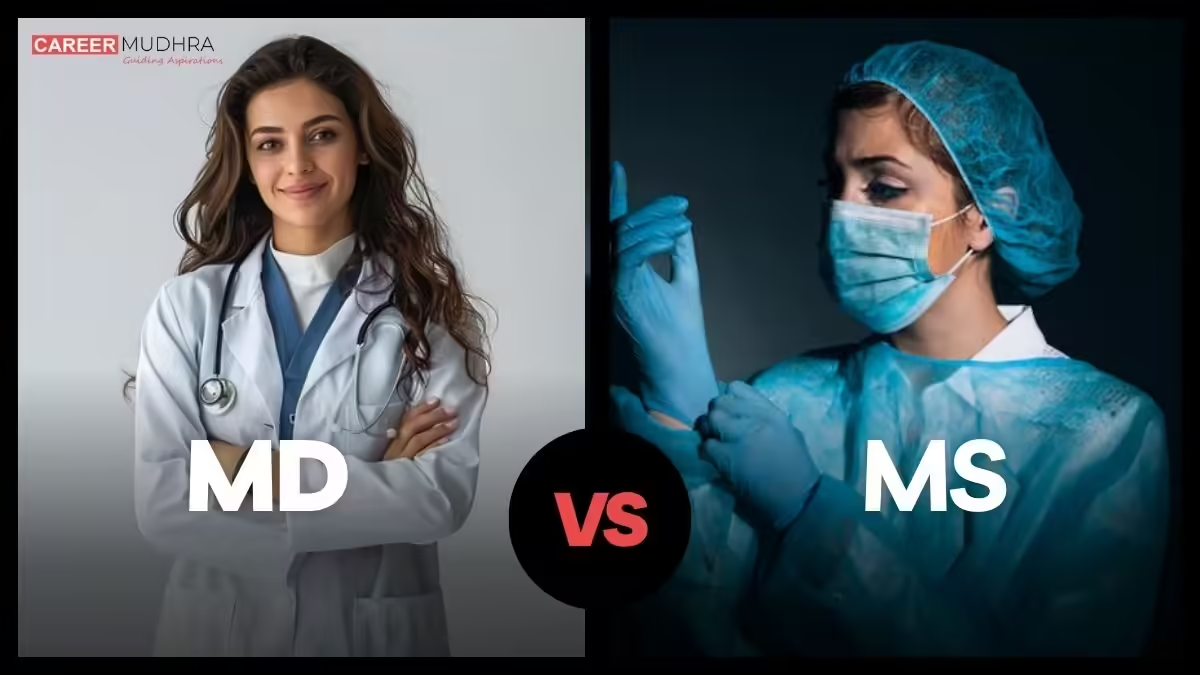

























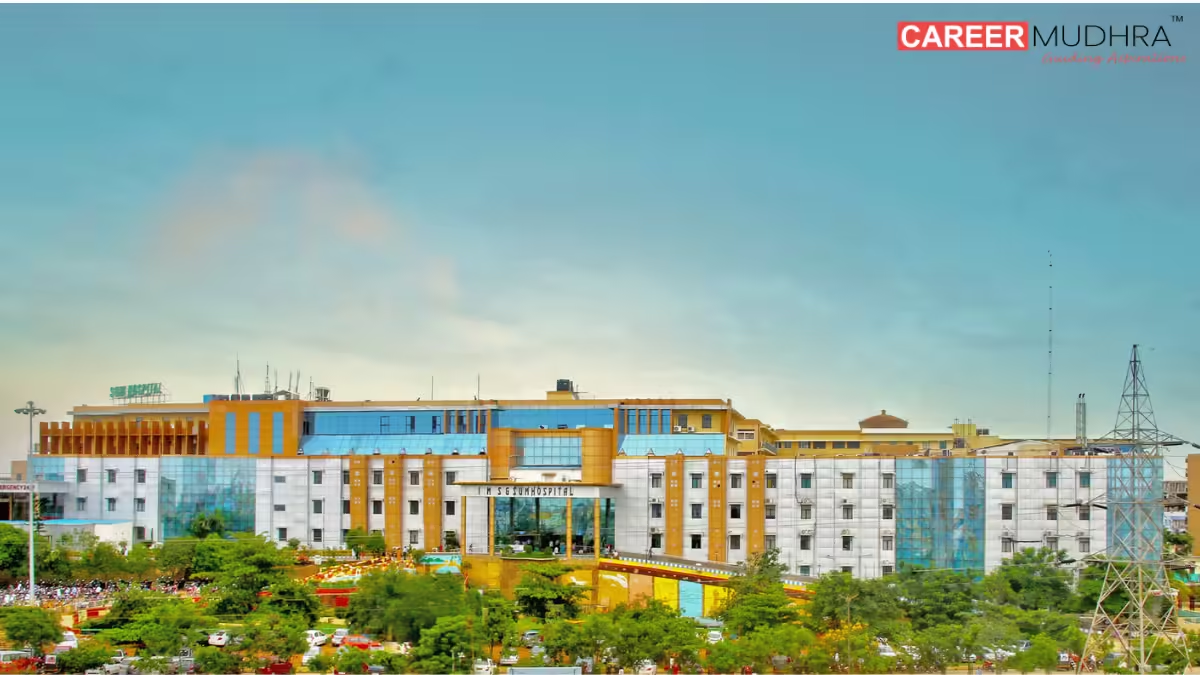

![Hind Institute of Medical Sciences - [HIMS] Sitapur: Admission, Courses, Eligibility, Fees, Placements, Rankings, Facilities Hind Institute of Medical Sciences – [HIMS] Sitapur: Admission, Courses, Eligibility, Fees, Placements, Rankings, Facilities](https://careermudhra.com/wp-content/uploads/hind-institute-of-medical-sciences-hims-sitapur-png.avif)




